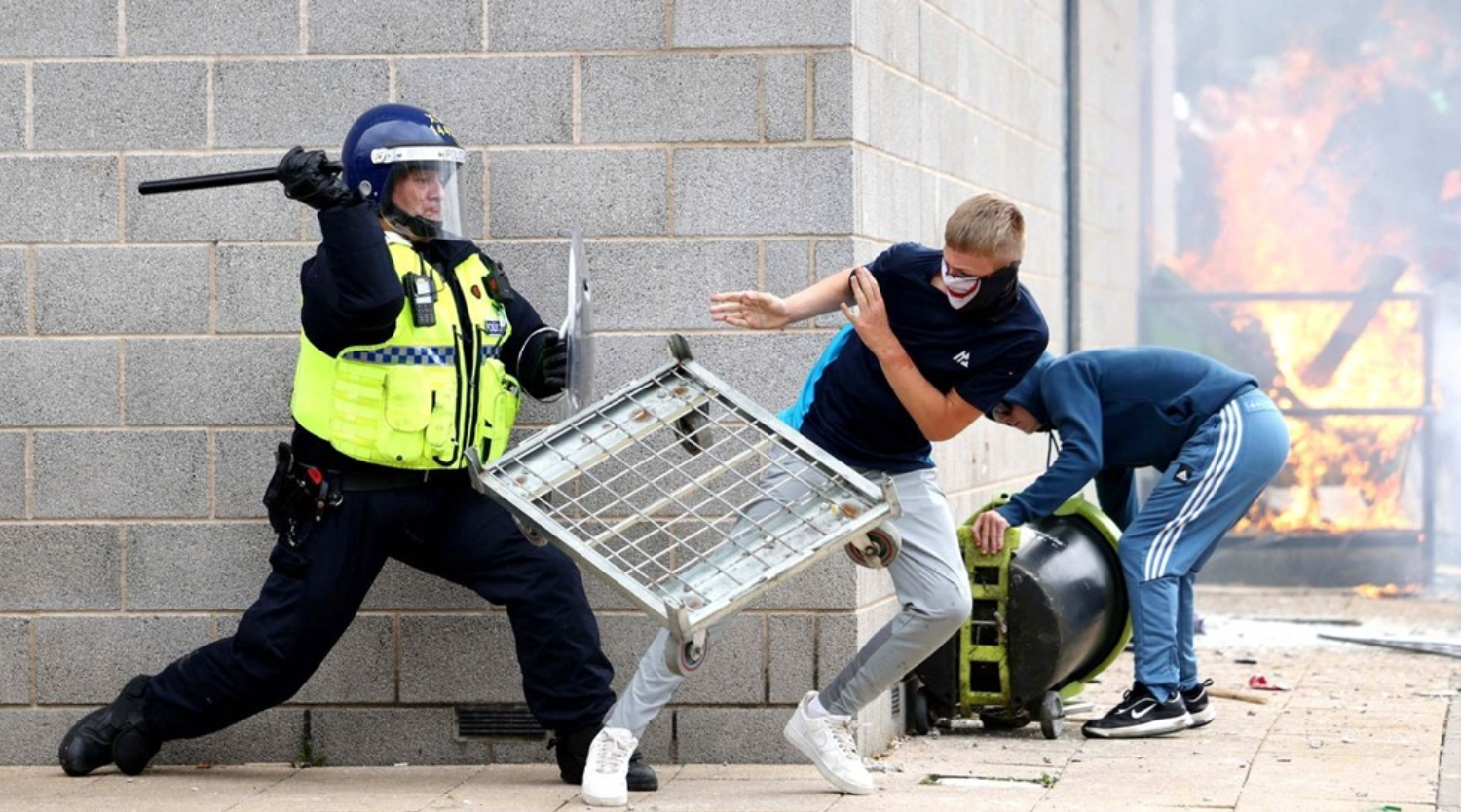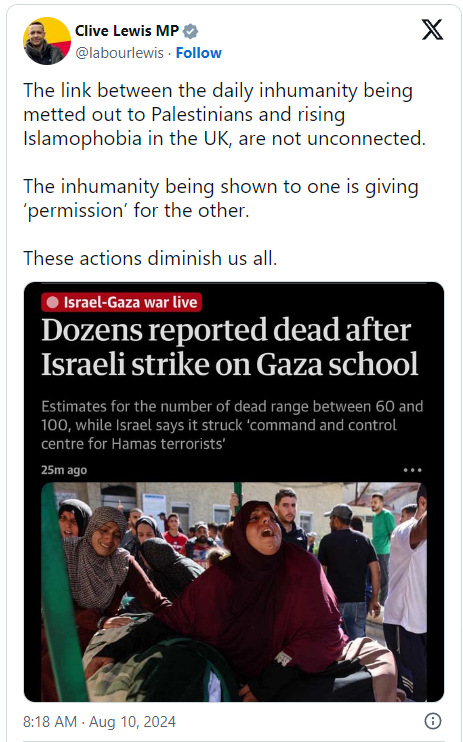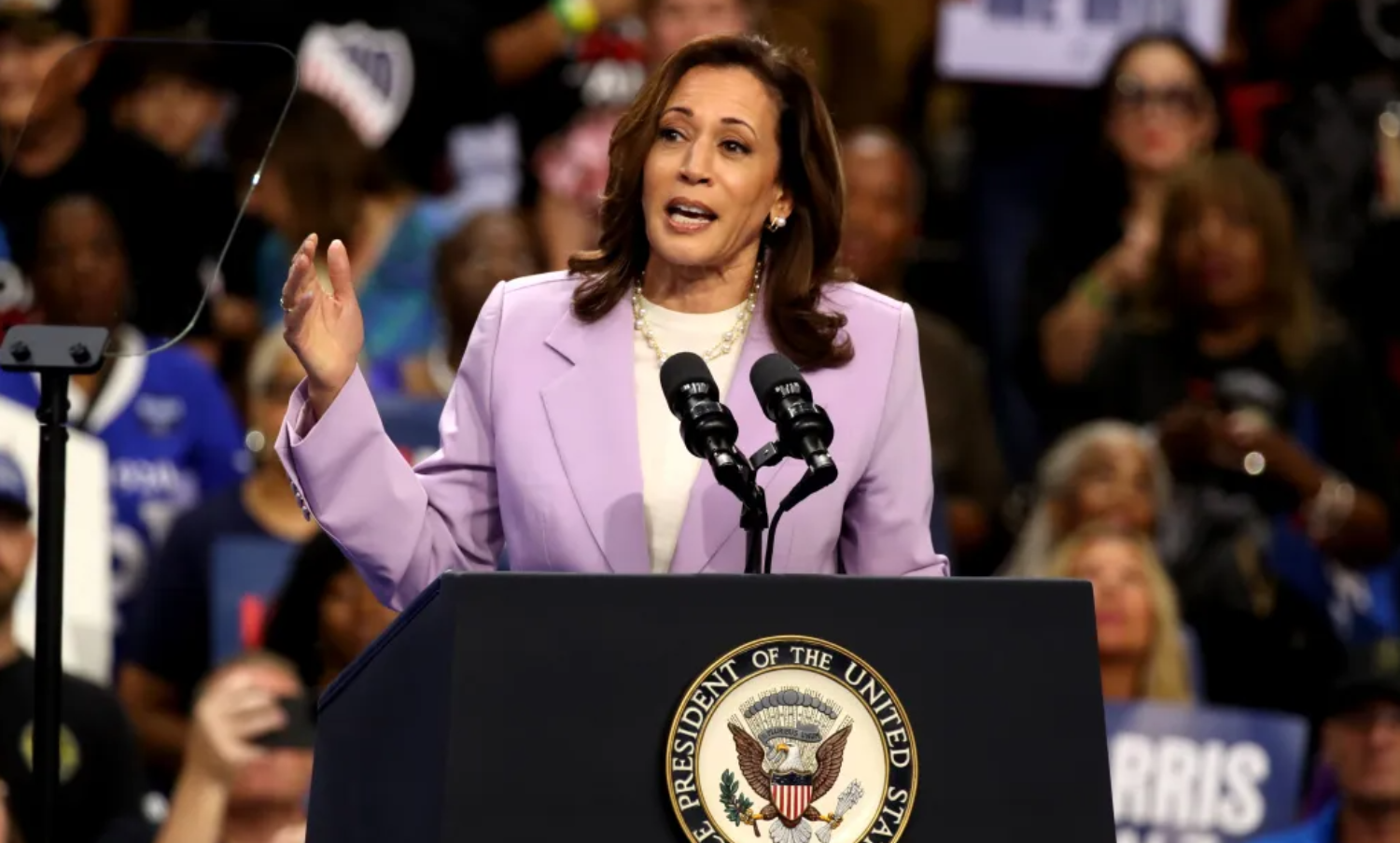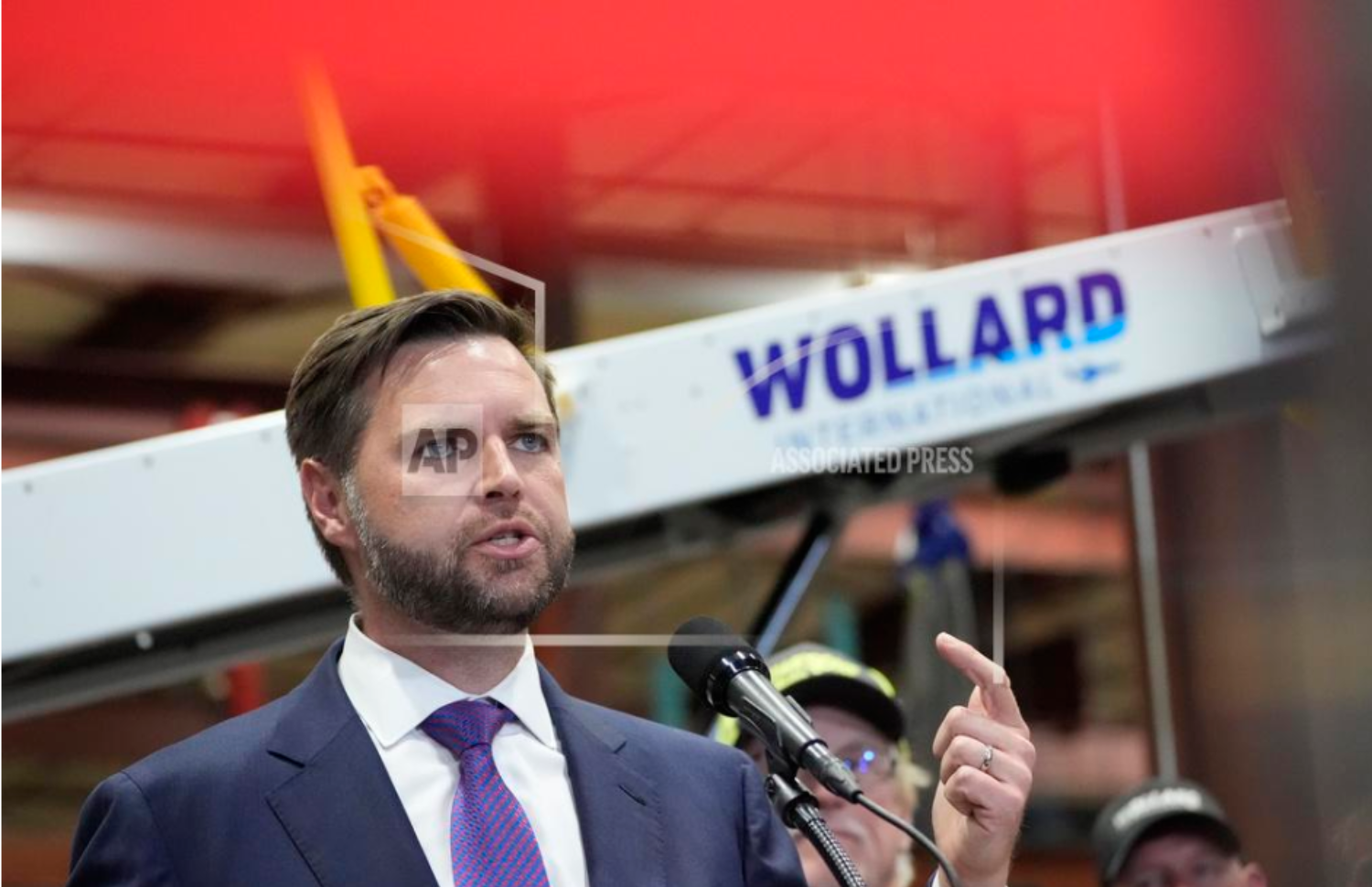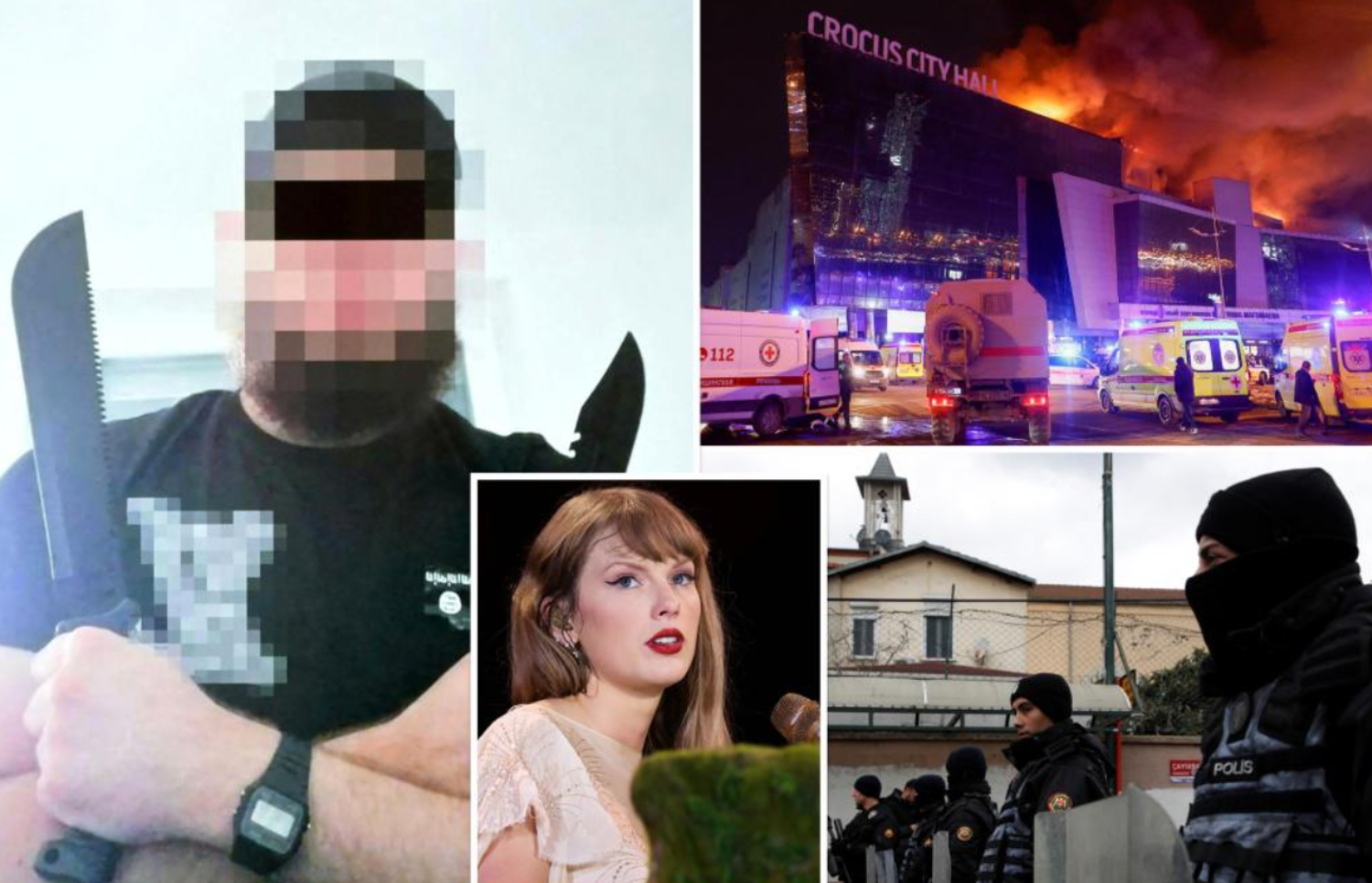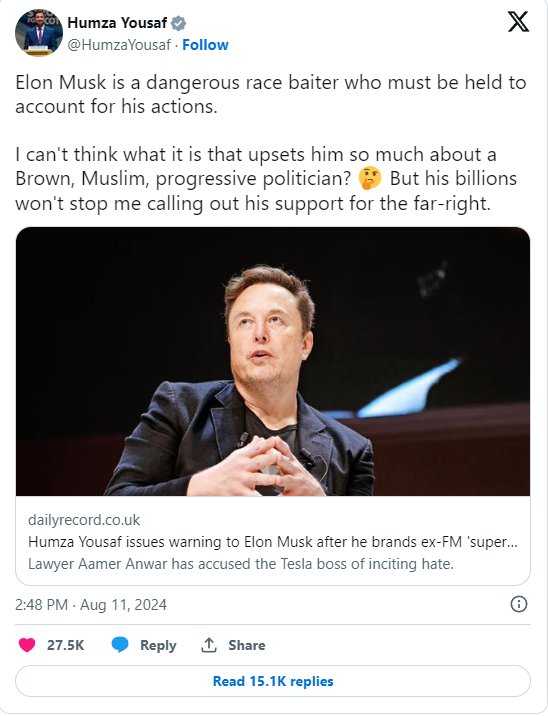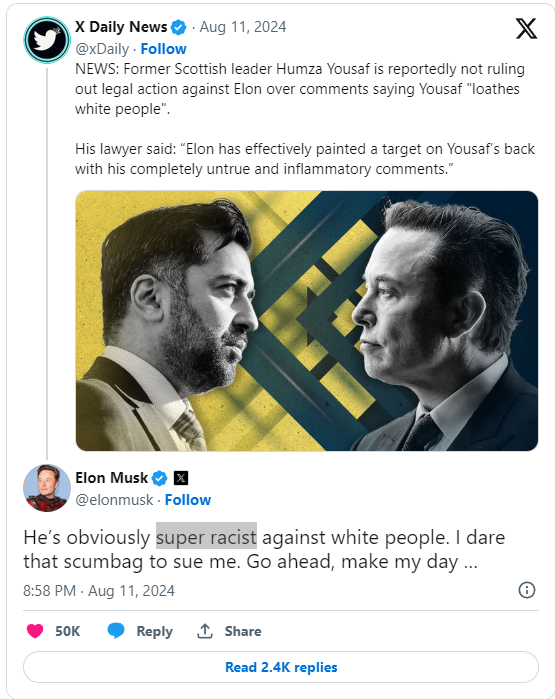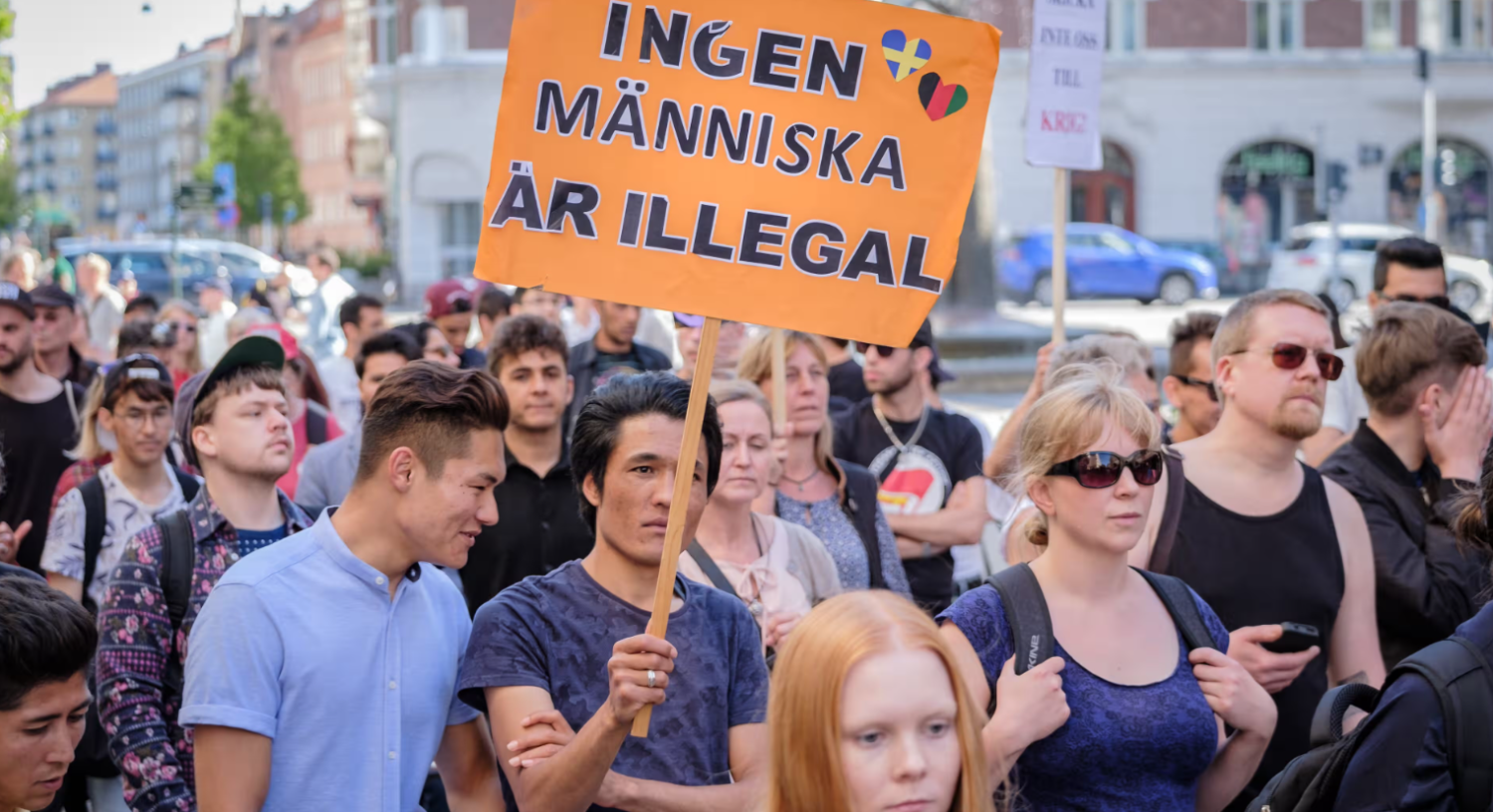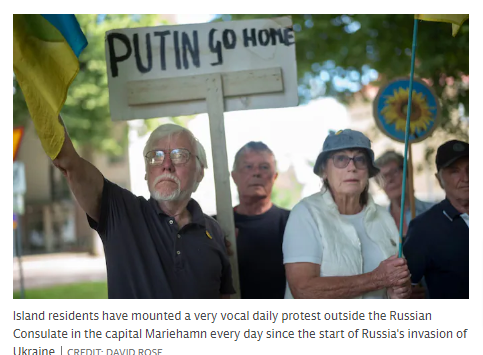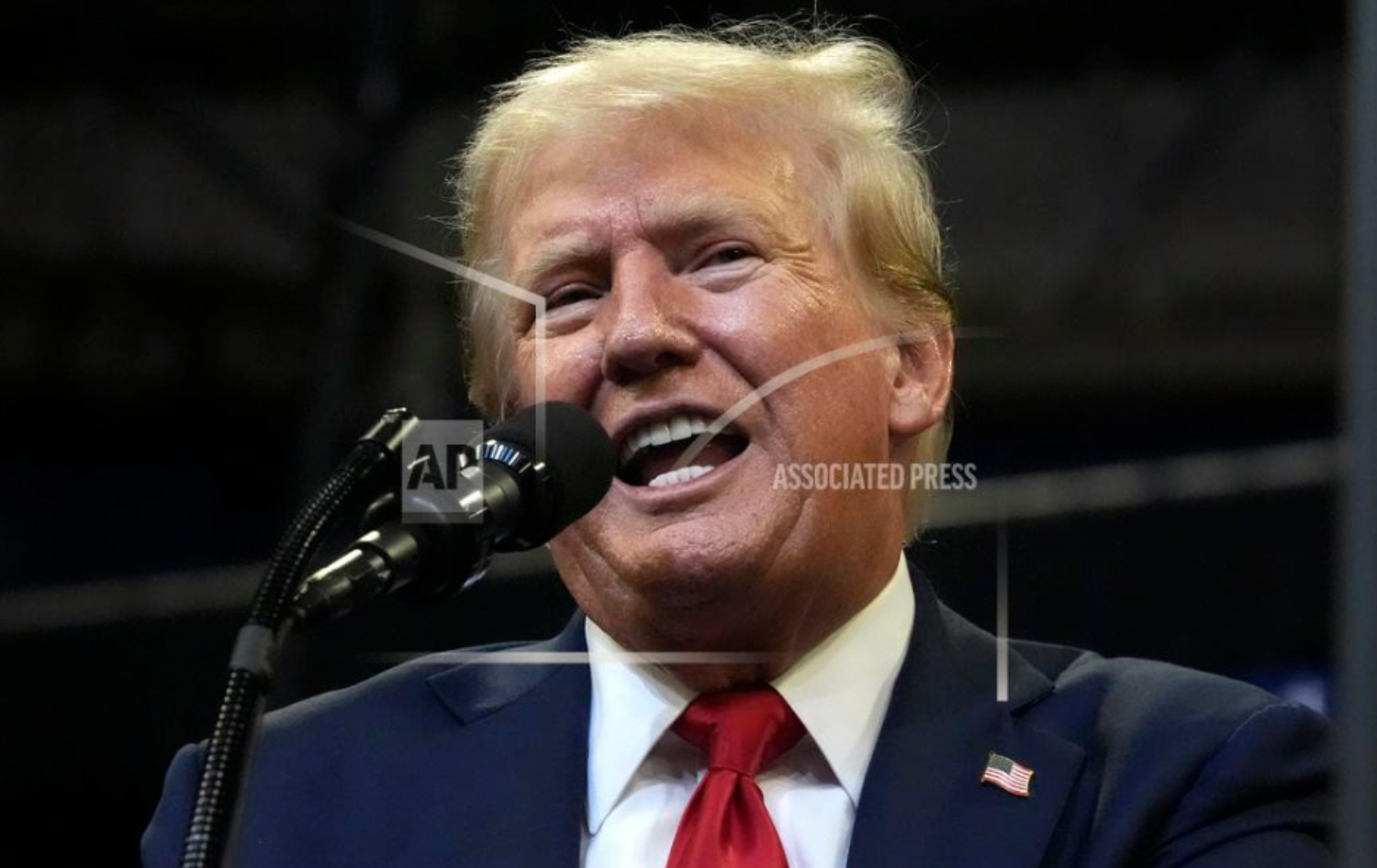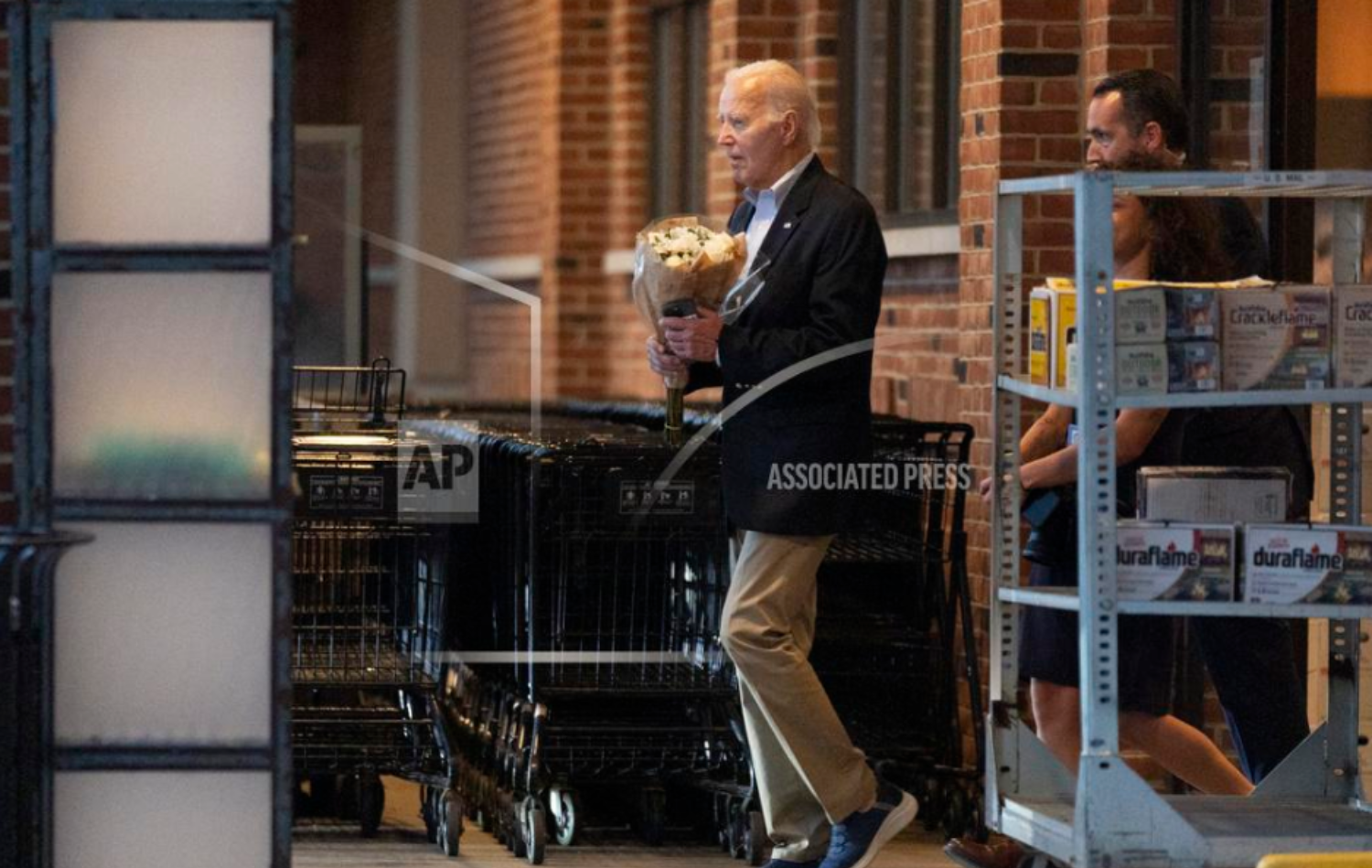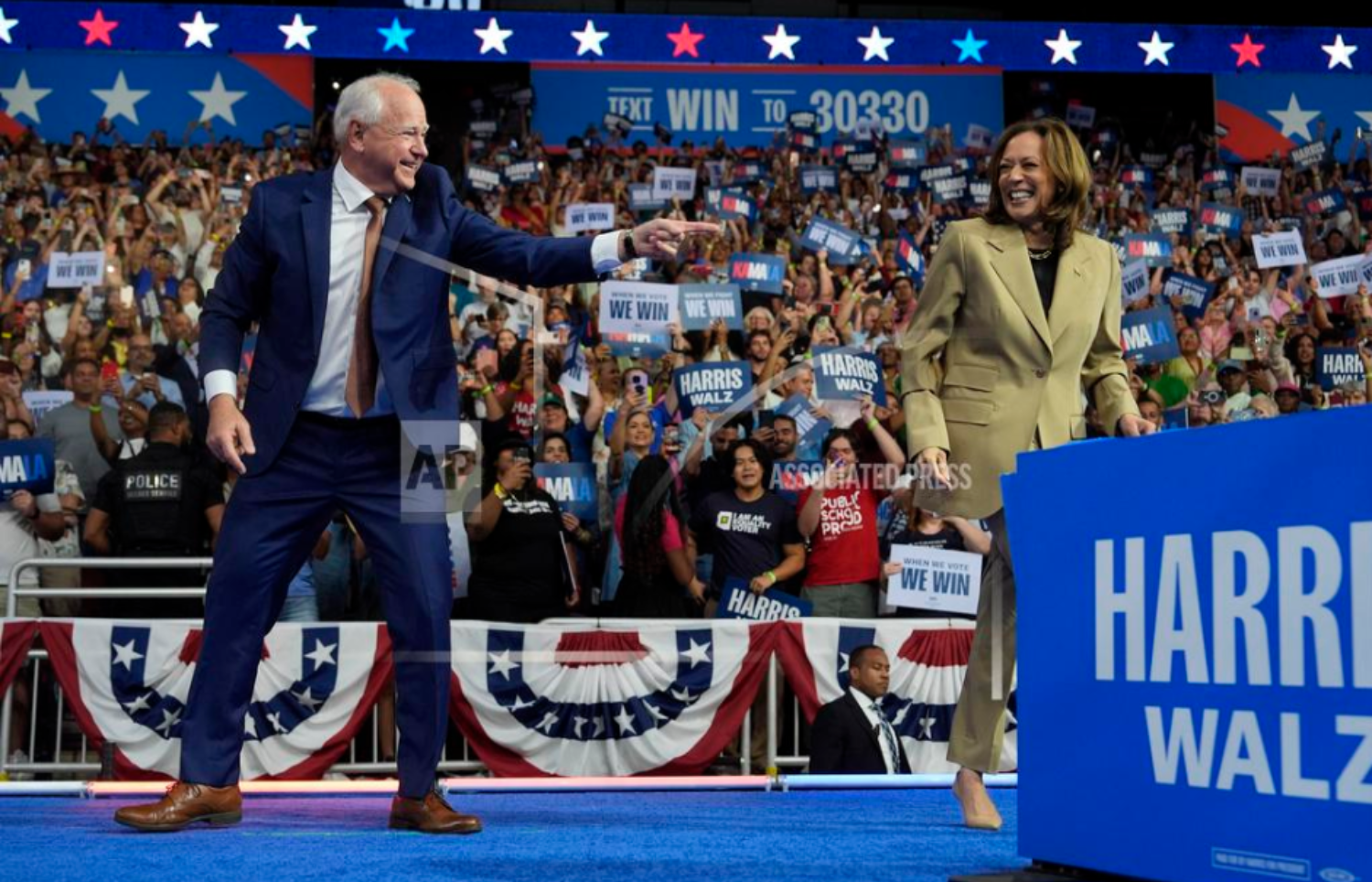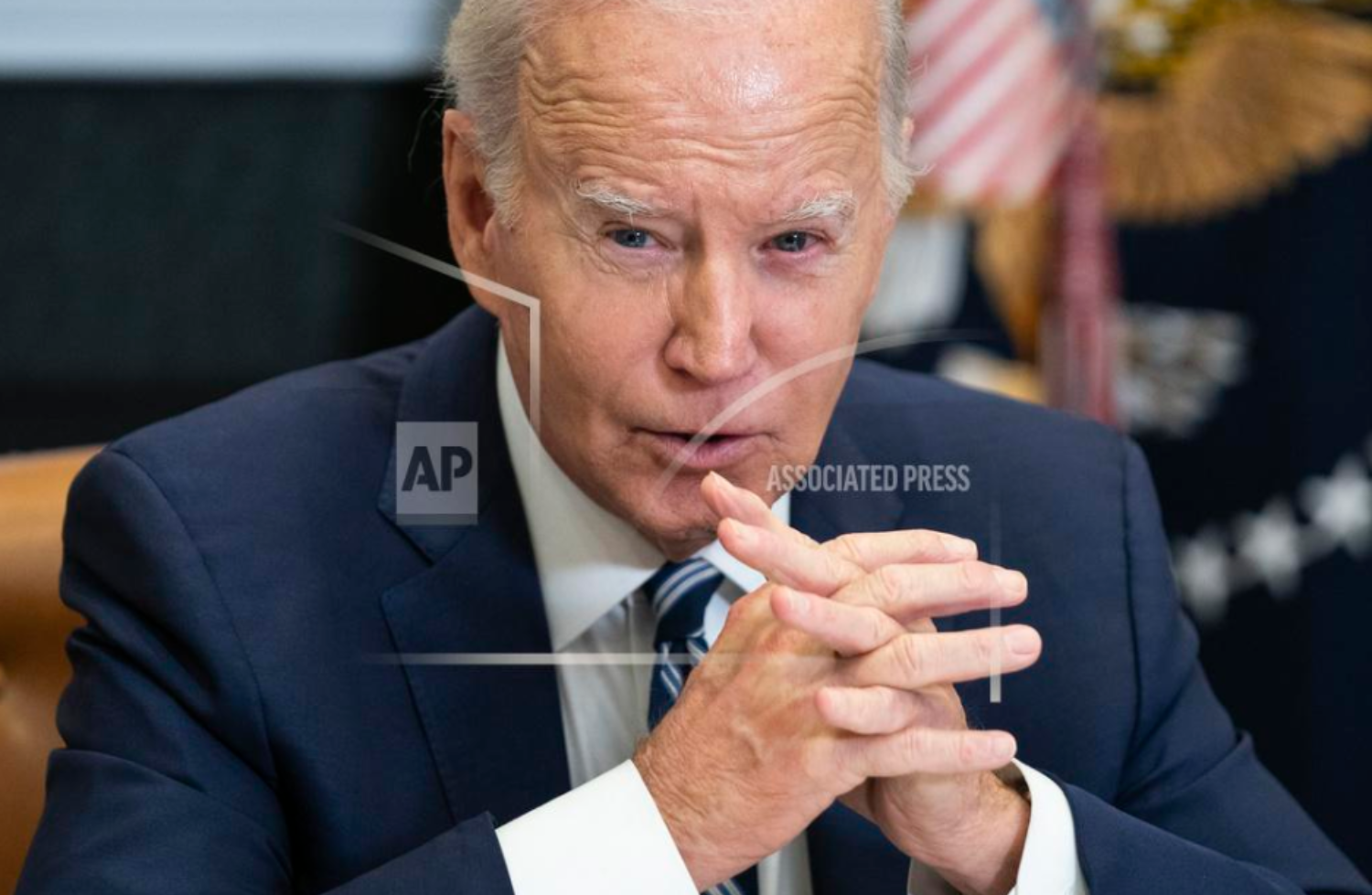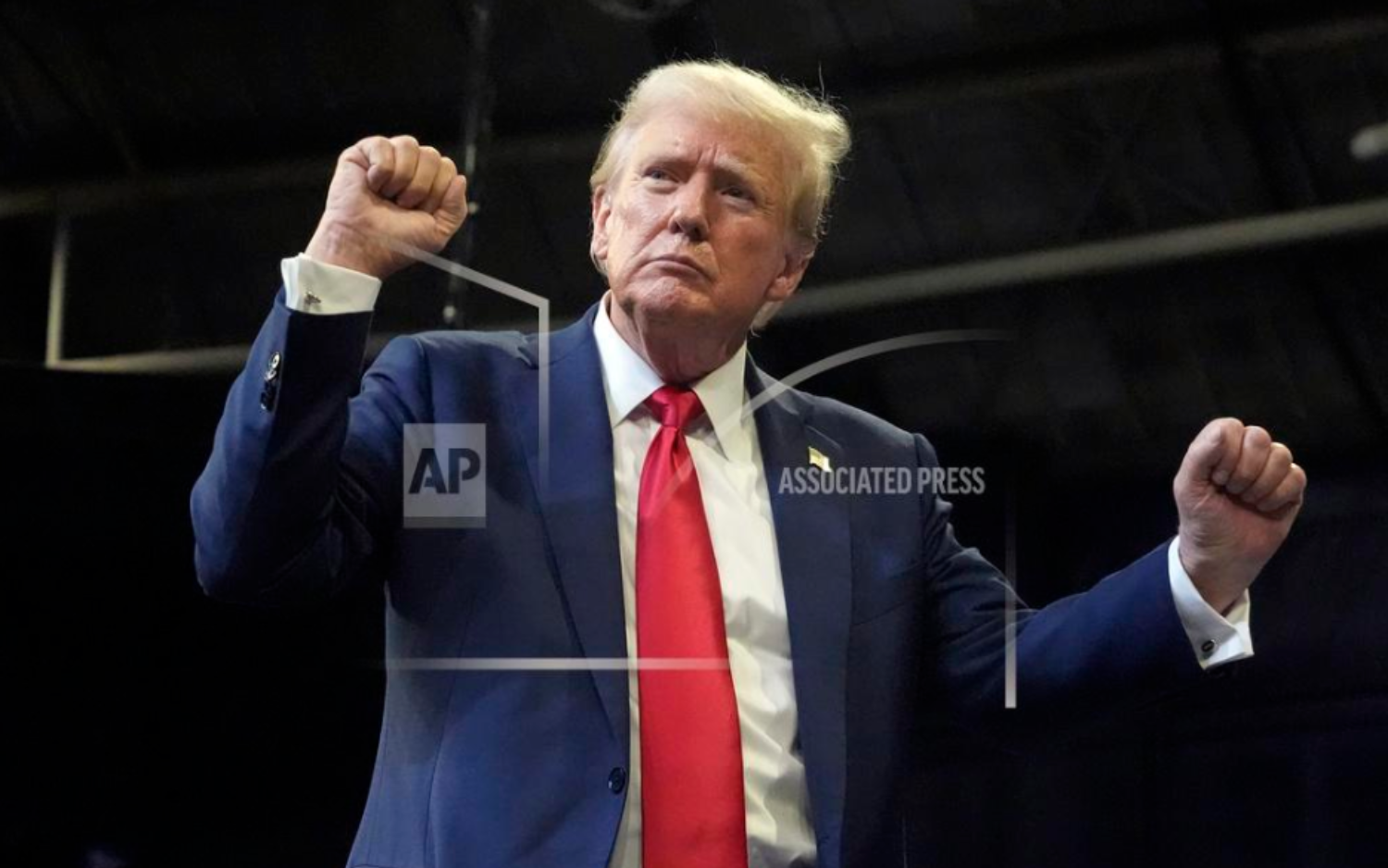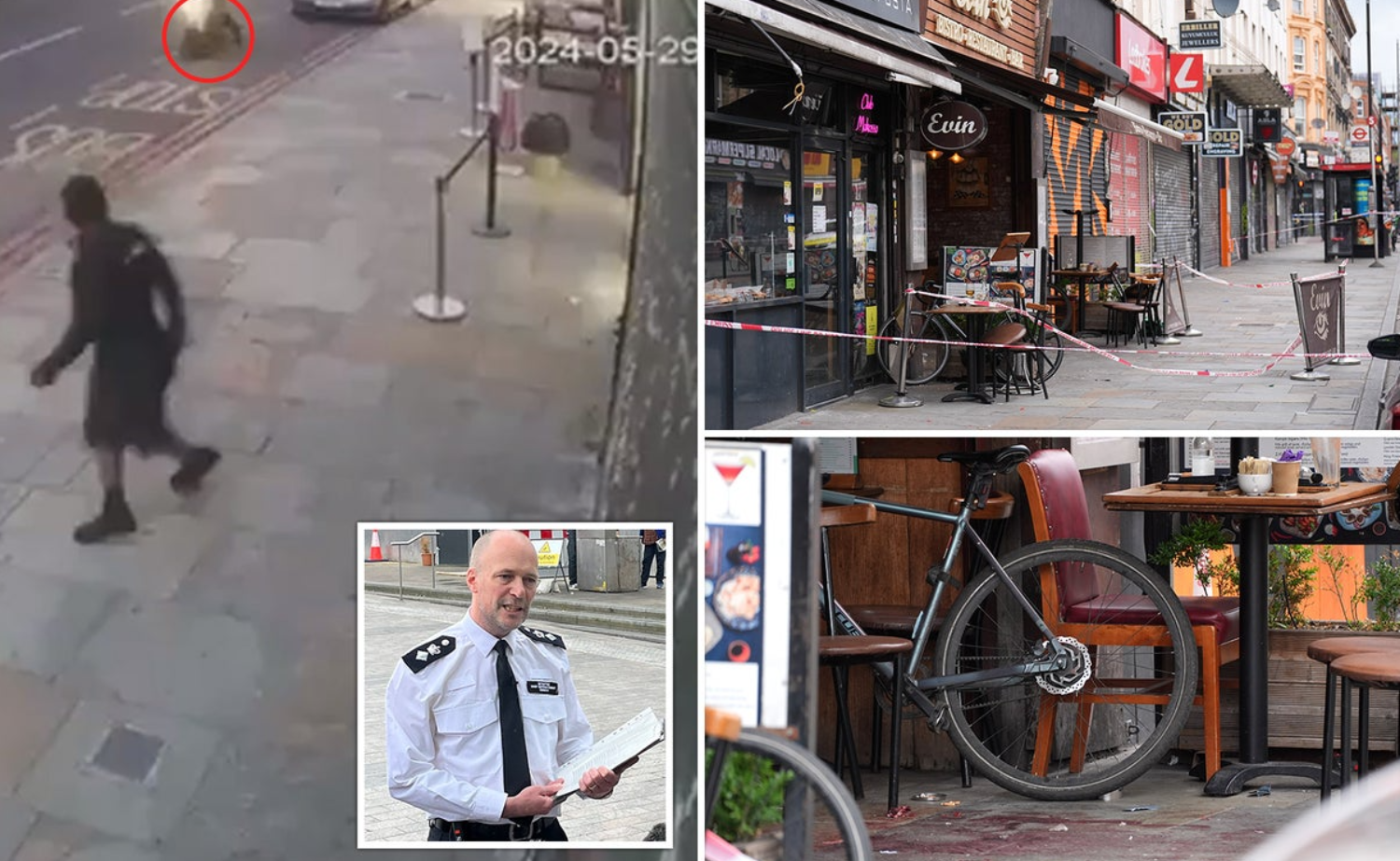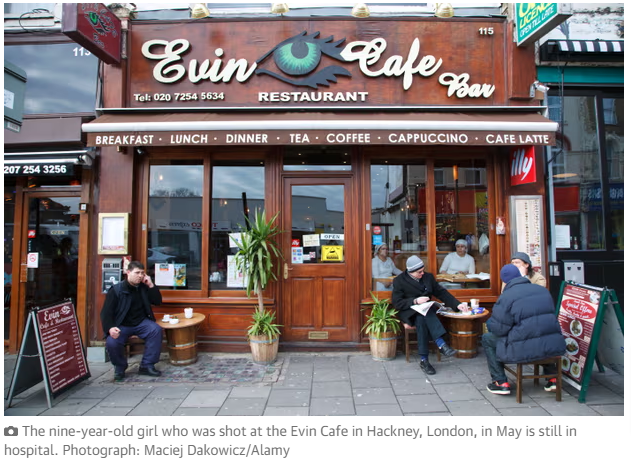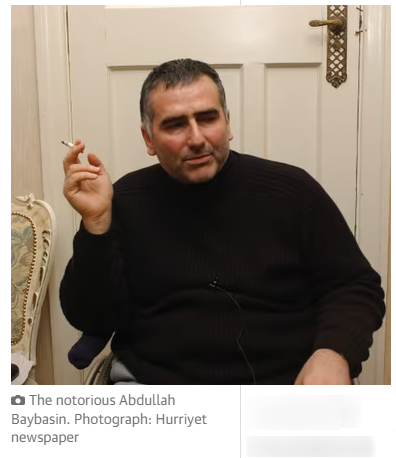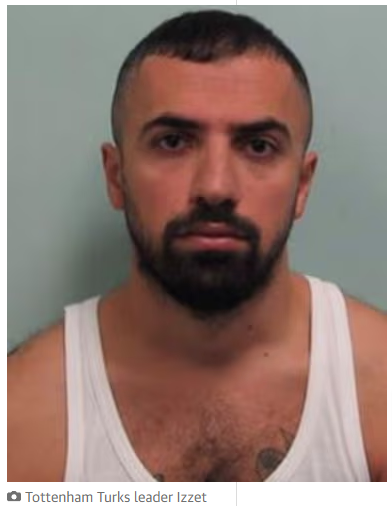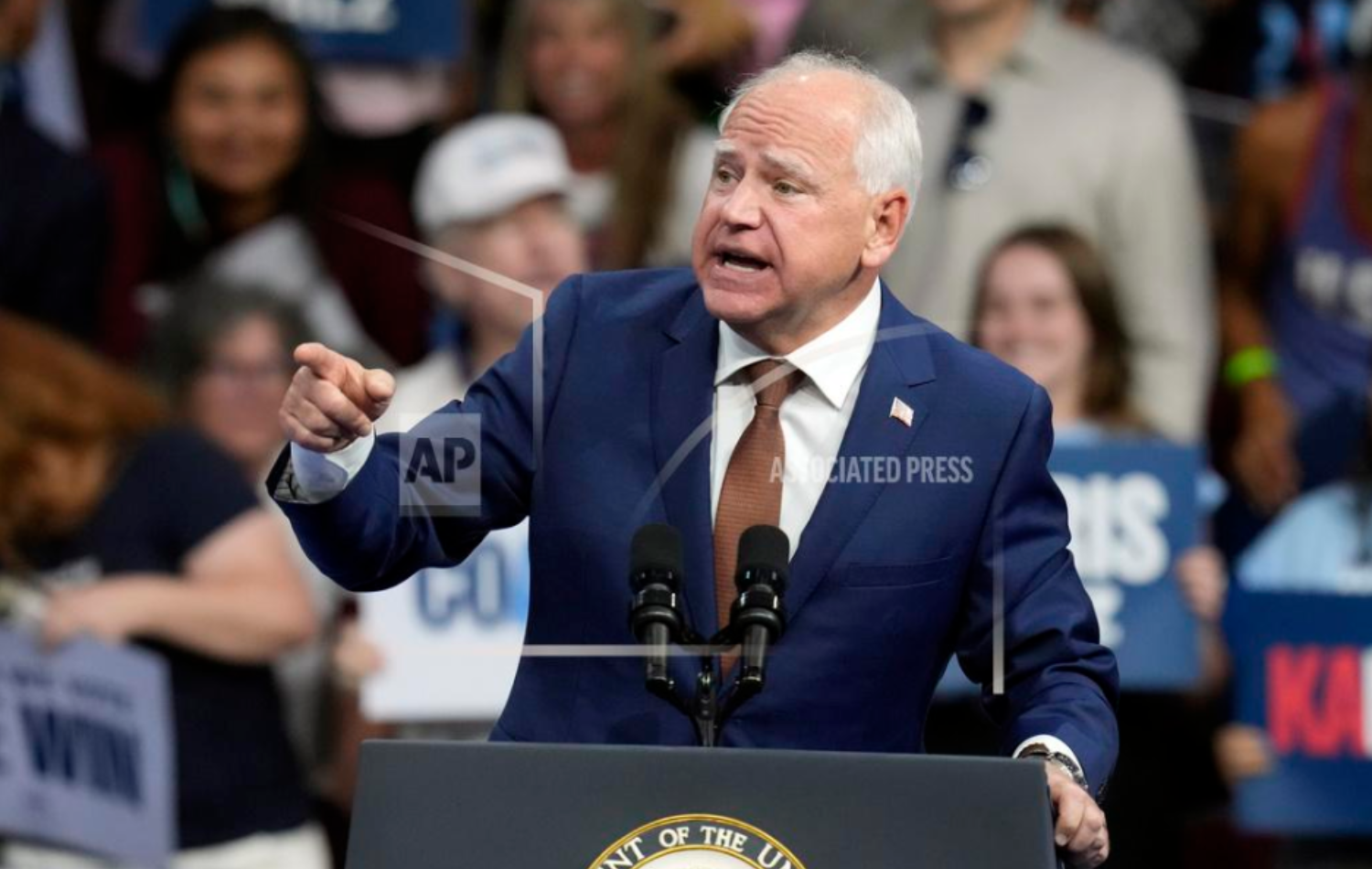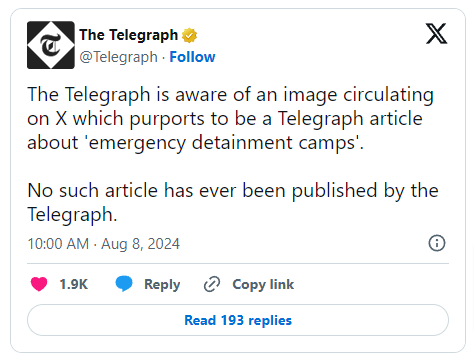-
Posts
10,807 -
Joined
-
Last visited
Content Type
Events
Forums
Downloads
Quizzes
Gallery
Blogs
Everything posted by Social Media
-
Clive Lewis, the Labour MP for Norwich South, has come under intense scrutiny after remarks suggesting a connection between Israel’s actions in Gaza and the recent far-right riots in the UK. His comments, which appeared to link the "inhumanity" toward Palestinians with rising Islamophobia in Britain, have sparked calls for his suspension from the Labour Party, particularly from anti-Semitism campaigners. The controversy erupted after Mr. Lewis posted on X, formerly known as Twitter, stating: "The link between the daily inhumanity being meted out to Palestinians and rising Islamophobia in the UK are not unconnected. The inhumanity being shown to one is giving 'permission' for the other. These actions diminish us all." This statement was perceived by many as blaming Israel for the unrest in Britain, leading to accusations that the MP was irresponsibly fueling anti-Semitic sentiments. Alex Hearn, co-director of the Labour Against Antisemitism campaign group, criticized Lewis’s comments as "highly irresponsible" and urged Labour leader Sir Keir Starmer to strip him of the whip. Hearn expressed concern that people across the political spectrum, including those who identify as "anti-racists," have been attributing unrest in Britain to "Zionists" and Israel. He cited a recent report by the Community Security Trust, which documented a 105 percent increase in anti-Semitic incidents in the UK over the last six months, with 1,978 incidents often justified by the situation in Palestine. Among these, synagogues were targeted 76 times, and there were 121 assaults reported. Hearn emphasized the gravity of Lewis’s statements, particularly in light of the rise in sectarian violence and record attacks against British Jews. He argued that blaming a conflict thousands of miles away for domestic racism and far-right riots in Britain was deeply irresponsible, and he called for Lewis’s immediate suspension and investigation. The Labour Against Antisemitism group believes that Lewis’s comments warrant expulsion from the party due to their potential to exacerbate sectarian tensions. In response to the growing calls for action, a Labour spokesperson stated that all complaints are treated seriously and thoroughly assessed according to party rules and procedures. However, it is understood that the party has so far rejected demands to suspend Mr. Lewis. The Prime Minister also weighed in, rejecting any suggestion that Jewish people were to blame for the UK riots, distancing the government from any such implications. Meanwhile, John McDonnell, a veteran Labour MP who was temporarily stripped of the whip for defying the government over the two-child benefit cap, defended Clive Lewis. He argued that it was "bizarre" and "warped logic" to accuse Lewis of anti-Semitism for commenting on how the visible inhumanity toward Muslims in Gaza, as seen daily on television, could contribute to inhumanity toward Muslims in the UK. The situation has sparked a broader debate within the Labour Party and among the public about the impact of international conflicts on domestic issues and the responsibilities of public figures in addressing them. As the controversy unfolds, it remains to be seen how the Labour Party will handle the complaints and what the longer-term implications will be for Clive Lewis and the party’s stance on such sensitive issues. Credit: Daily Telegraph 2024-08-14 Get our Daily Newsletter - Click HERE to subscribe Cigna offers a variety of health insurance plans designed to meet the minimum requirement for medical treatment coverage, with benefits reaching up to THB 3 million. These plans are tailored to provide comprehensive healthcare solutions for expatriates, ensuring peace of mind and access to quality medical services. To explore the full range of Cigna's expat health insurance options and find a plan that suits your needs, click here for more information.
-
In a landmark discovery that could reshape our understanding of Mars, scientists have identified a substantial reservoir of liquid water deep within the planet's rocky outer crust. This finding, derived from a meticulous analysis of data collected by NASA's Mars Insight Lander, represents the first confirmed detection of liquid water on Mars—a revelation that could have profound implications for our understanding of the planet's history, its geology, and the potential for life. The Insight Lander, which touched down on Mars in 2018, was equipped with a sensitive seismometer, a device designed to record vibrations or "Mars quakes" from deep within the planet. Over the course of four years, this instrument captured a wealth of seismic data, allowing scientists to study how the Red Planet moves and reacts to internal forces. The analysis of these vibrations revealed "seismic signals" indicative of the presence of liquid water deep within Mars' crust. While it has long been known that water exists on Mars in frozen form at the poles and as vapor in the atmosphere, this discovery marks the first time that liquid water has been detected beneath the planet's surface. The findings were published in the *Proceedings of the National Academy of Sciences*, shedding new light on Mars' geological history and offering insights into its climate and potential habitability. The Insight Lander's mission officially concluded in December 2022, after four years of diligently "listening" to the "pulse of Mars." During this time, the probe recorded an impressive 1,319 quakes, each of which provided critical data for understanding the planet's internal structure. By analyzing the speed at which seismic waves traveled through Mars, scientists were able to infer the composition of the materials they passed through. As explained by Professor Michael Manga from the University of California, Berkeley, "These are actually the same techniques we use to prospect for water on Earth, or to look for oil and gas." The detailed analysis led to the discovery of water reservoirs at depths ranging from six to twelve miles (approximately 10 to 20 kilometers) within the Martian crust. This revelation is particularly significant because it suggests that Mars may have retained more of its ancient water than previously thought, hidden away beneath its barren surface. "Understanding the Martian water cycle is critical for understanding the evolution of the climate, surface, and interior," emphasized Dr. Vashan Wright, the lead researcher from UC San Diego’s Scripps Institution of Oceanography. The presence of liquid water deep within the planet's crust could provide crucial clues about the history of Mars' climate and its transition from a potentially habitable world to the arid desert we observe today. Professor Manga further underscored the importance of this discovery by stating that water is "the most important molecule in shaping the evolution of a planet." He added that this finding addresses a long-standing question in planetary science: "Where did all the Martian water go?" The presence of liquid water deep underground offers a compelling answer to this mystery, suggesting that a significant portion of Mars' water may still be present, albeit hidden beneath the surface. Historical studies of Mars' surface, which reveal the presence of ancient channels and ripples, indicate that the planet once harbored rivers and lakes, possibly sustaining a more Earth-like environment. However, for the past three billion years, Mars has been a cold, dry desert. It is widely believed that much of the planet's water was lost to space when Mars lost its atmosphere. But as Professor Manga pointed out, "much of our water is underground, and there's no reason for that not to be the case on Mars too." This groundbreaking discovery opens up new avenues for future research, not only in understanding Mars' geological and climatic history but also in exploring the potential for life on the Red Planet. The presence of liquid water is a key ingredient for life as we know it, and finding it on Mars raises intriguing possibilities about the planet's past and its capacity to support life, either in its distant history or possibly even today. As scientists continue to analyze the data from the Insight mission, the implications of this discovery will likely continue to unfold, offering new insights into the mysteries of Mars and its evolution. The detection of liquid water deep within Mars' crust is not just a scientific triumph; it is a testament to the enduring human quest to explore and understand our neighboring worlds. Credit: BBC 2024-08-14 Get our Daily Newsletter - Click HERE to subscribe Cigna offers a variety of health insurance plans designed to meet the minimum requirement for medical treatment coverage, with benefits reaching up to THB 3 million. These plans are tailored to provide comprehensive healthcare solutions for expatriates, ensuring peace of mind and access to quality medical services. To explore the full range of Cigna's expat health insurance options and find a plan that suits your needs, click here for more information.
-
A shocking and violent attack unfolded in London’s bustling Leicester Square, leaving an 11-year-old girl and her 34-year-old mother injured after a random stabbing. The incident occurred in broad daylight, in front of horrified workers and tourists, and was only brought to an end by the quick and brave actions of a local security guard. The attacker, a 32-year-old man, who is not believed to have known his victims, was quickly subdued and disarmed by the security guard, Abdullah, who works at the TWG Tea shop located in Leicester Square. Abdullah, 29, described how he sprang into action after hearing a scream, witnessing the man stabbing the young girl. He immediately intervened, tackling the assailant and taking the knife from him while others helped hold the man down until the police arrived. "I heard a scream," Abdullah recounted to the PA news agency. "I saw there was one person, roughly [in their] mid-30s or early 30s, and he was like stabbing a kid—I jumped on him, held the hand in which he was [carrying] a knife, and just put him down on the floor and just held him and took the knife away from him." Abdullah's quick response, along with the help of others, ensured that the attacker was restrained until police arrived on the scene, taking the man into custody within minutes. The girl, who was reportedly grabbed and held in a headlock by the attacker before being stabbed, sustained serious injuries, particularly near her right eye. Despite the severity of her injuries, medical professionals have indicated that her condition is not life-threatening. Her mother also sustained minor injuries during the attack. Both victims were taken to the hospital by paramedics, where the girl continues to receive treatment. Eyewitness accounts paint a harrowing picture of the incident. Desmond, a 45-year-old street performer known for his Darth Vader costume, described the chilling moment he saw the attack. "When I looked to my side, I saw a young man... stabbing her several [times] with a knife," he said. "It was so terrible, I’ve never seen a thing like that. I was heartbroken; I saw the woman was screaming with all her strength." Another witness, who preferred to remain anonymous, noted that the suspect had been seen earlier in the day, behaving erratically, "standing, doing nothing, eating and talking to himself." The attacker, described as a white, skinny male wearing a black T-shirt and jeans, was quickly apprehended, and a police cordon was established around the scene, particularly around the entrance to the TWG Tea shop where the incident occurred. Ezat Katerzis, a manager with the Toot buses tour company, described the suspect as appearing “mentally disturbed,” suggesting that the attack was unprovoked and possibly influenced by the assailant's mental state. “It looked like he had something missing. He just stabbed the girl out of the blue. She was with her family,” Katerzis told The Guardian. He detailed the aftermath, noting the blood pouring from the girl's face and speculated that she was likely a tourist based on her appearance. Katerzis further described the attacker’s demeanor as disconnected and unresponsive, suggesting that he might have been under the influence of drugs. “I think the guy was mentally disturbed. He is only a skinny guy. He didn’t say anything when they arrested him and took him to the van. It was like he was on drugs or something. I don’t think it was a robbery. He just started stabbing her for no reason.” Another witness, Joy Akan, who also works for Toot buses, captured footage of the suspect after his arrest. The video, timestamped at 11:41 am, shows a lightly built man in a black T-shirt featuring an Abbey Road logo, wearing black tracksuit trousers. The video has circulated widely, illustrating the chaotic and disturbing nature of the incident. In response to the attack, DCS Christina Jessah, who oversees policing for Westminster, called the event a “horrific incident” and praised the bravery of those who intervened. "The members of the public, including staff from local businesses, who bravely intervened in this incident... showed the best of London in doing so,” she stated, underscoring the courage displayed by ordinary citizens in the face of violence. As the Metropolitan Police continue their investigation, the focus remains on understanding the motive behind the attack and ensuring the safety of the public. The incident has shocked the local community and tourists alike, serving as a reminder of the unpredictability of such acts of violence. While the police have indicated that the attack is not being treated as terrorism-related, the urgency of the investigation reflects the serious nature of the crime and its impact on those involved. Credit: The Guardian 2024-08-13 Get our Daily Newsletter - Click HERE to subscribe Cigna offers a variety of health insurance plans designed to meet the minimum requirement for medical treatment coverage, with benefits reaching up to THB 3 million. These plans are tailored to provide comprehensive healthcare solutions for expatriates, ensuring peace of mind and access to quality medical services. To explore the full range of Cigna's expat health insurance options and find a plan that suits your needs, click here for more information.
-
Vice President Kamala Harris unveiled a promise to eliminate taxes on tips during a campaign rally in Las Vegas on Saturday, a move that quickly drew the ire of former President Donald Trump, who accused her of copying one of his signature policy ideas. The event, held in the hospitality-heavy state of Nevada, saw Harris promising to support working families by raising the minimum wage and removing taxes on tips for service and hospitality workers, a declaration that was met with enthusiastic applause from the crowd. However, this proposal, which Harris positioned as a key part of her campaign platform, closely mirrors a similar policy that Trump has been promoting since before Harris entered the presidential race. Trump, the Republican presidential nominee, wasted no time in calling out Harris for what he saw as an act of political mimicry. “Kamala Harris, whose ‘Honeymoon’ period is ENDING, and is starting to get hammered in the Polls, just copied my NO TAXES ON TIPS Policy,” Trump wrote on his social media platform, Truth Social. He went on to criticize Harris, claiming that her promise was merely for political gain and that she would not follow through with it. “The difference is, she won’t do it, she just wants it for Political Purposes! This was a TRUMP idea – She has no ideas, she can only steal from me.” Trump first introduced the no-tax-on-tips proposal during his own campaign stop in Nevada back in June, where he shared a story about a waiter who had lost a significant portion of her tips to taxes. This encounter inspired him to include the policy in his campaign, making it a cornerstone of his appeal to the working-class voters in the state. Harris, however, sought to cast doubt on Trump’s sincerity, arguing that his administration would ultimately favor the wealthy over the average American worker. During her speech, Harris criticized Trump for his economic policies, accusing him of planning to give tax breaks to billionaires and large corporations while cutting essential programs like Social Security and Medicare. “If he is elected, Donald Trump intends to give tax breaks to billionaires and big corporations. He intends to cut Social Security and Medicare, and he intends to surrender our fight against the climate crisis,” Harris declared. Her running mate, Minnesota Governor Tim Walz, echoed these sentiments, suggesting that a Trump presidency would rig the economy in favor of the rich, leaving the middle class with nothing. Despite the back-and-forth between the two candidates, some attendees at the rally acknowledged the similarities between Harris’s proposal and Trump’s. “Sounds like a positive thing. I mean, it’s the same thing Trump said, isn’t it?” commented Tammy Campa, a local appraiser who once worked as a busser at Circus Circus, a popular Las Vegas casino. Others, however, expressed more confidence in Harris’s ability to deliver on the promise. “He said it,” local retiree Varel Jackson remarked. “But, you know, you can’t believe everything that comes out of Trump’s mouth.” The rally, which took place at the University of Nevada’s Thomas & Mack Center, drew an estimated 12,000 attendees, according to campaign spokespeople. Although the arena has a capacity of up to 19,500, the top tier was closed off, leaving a portion of the stadium unfilled. The campaign also claimed that an additional 4,000 people were turned away due to the extreme heat, with temperatures soaring to a record-breaking 120 degrees. Harris’s visit to Nevada was the final stop in a series of campaign events across key battleground states, including Pennsylvania, Wisconsin, Michigan, and Arizona. These states, along with Nevada, are seen as crucial to securing a victory in the upcoming election. In 2020, President Biden narrowly won Nevada, defeating Trump by just 2.4 percentage points. The Las Vegas rally also followed a significant endorsement from the Culinary Union, Nevada’s largest labor union, which represents a substantial portion of the state’s workforce. This endorsement is likely to bolster Harris’s appeal among Nevada’s voters, particularly in a state where the service and hospitality industries play such a vital role in the economy. As the 2024 presidential race heats up, the debate over who truly champions the interests of working Americans is likely to intensify. Harris’s adoption of the no-tax-on-tips policy, whether seen as a genuine commitment or a political strategy, underscores the broader battle for the support of the nation’s working class. In a state like Nevada, where tipped workers are a significant demographic, the issue of tip taxation is particularly resonant, making it a key point of contention between the two leading candidates. Credit: NYP 2024-08-13 Get our Daily Newsletter - Click HERE to subscribe Cigna offers a variety of health insurance plans designed to meet the minimum requirement for medical treatment coverage, with benefits reaching up to THB 3 million. These plans are tailored to provide comprehensive healthcare solutions for expatriates, ensuring peace of mind and access to quality medical services. To explore the full range of Cigna's expat health insurance options and find a plan that suits your needs, click here for more information.
-
Days after former President Donald Trump suggested he might consider banning access to mifepristone, a key drug used in medication abortions, Republican vice presidential nominee Sen. JD Vance moved quickly to clarify Trump’s remarks. Vance's comments came during an appearance on CBS’ “Face the Nation,” where he was questioned about the possibility of a Trump-Vance administration using the Food and Drug Administration (FDA) to restrict access to mifepristone. When asked directly about the potential of blocking access to the abortion pill, Vance responded with a firm denial. “Well, no,” Vance stated. “What the president has said very clearly is that abortion policy should be made by the states, right? You of course want to make sure that any medicine is safe and it’s prescribed in the right way, and so forth.” Vance emphasized that Trump’s position has consistently been that individual states and their voters should have the authority to determine their abortion policies, and the federal government should respect these state-level decisions. Vance also underscored Trump’s desire for the Republican Party to step away from the cultural battles surrounding the abortion issue. He reiterated that Trump has long believed in empowering states to make their own decisions regarding abortion, rather than imposing federal mandates. This clarification came after Trump’s comments during a press conference at his Mar-a-Lago resort last week, where he seemed to leave the door open to potentially banning mifepristone. When asked by NBC News whether he would consider directing the FDA to revoke access to the drug, Trump responded, “You could do things that ... would supplement — absolutely — those things are pretty open and humane.” He went on to suggest that there are “many things on a humane basis that you can do outside of that,” but emphasized the importance of allowing people to have a vote on abortion-related issues. Trump’s recent remarks appeared to contrast with his previous stance on the abortion pill. During a CNN debate in June, Trump explicitly stated that he would “not block it.” The mixed messaging raised concerns and prompted further inquiries into the former president’s true position. Karoline Leavitt, the national press secretary for Trump’s campaign, sought to clear up any confusion, telling NBC News that Trump has consistently supported states’ rights to make decisions on abortion. Leavitt also mentioned that the questions posed during the Mar-a-Lago press conference were “difficult to hear,” and assured that Trump’s stance on mifepristone remains unchanged. She pointed out that “the Supreme Court unanimously decided on the issue and the matter is settled.” In June, the Supreme Court upheld access to mifepristone, rejecting a challenge from a group of anti-abortion doctors. However, access to the drug continues to vary by state following the Court’s 2022 decision to overturn Roe v. Wade, a landmark ruling that previously guaranteed a constitutional right to abortion. During his CBS interview, Vance was asked to address Trump’s recent comments in more detail. Vance again attributed any misunderstanding to the difficulty in hearing the questions posed at the press conference. “Maybe he couldn’t hear that person super clearly, so I don’t want to put words in President Trump’s mouth,” Vance said. He reiterated that Trump supports the Supreme Court’s decision to keep mifepristone on the market and emphasized that Trump believes the states should be the ones making decisions on such issues. On the same day, Vance appeared on ABC News’ “This Week,” where he was not directly asked about the campaign’s stance on mifepristone. Instead, the conversation shifted to how Vance might advise Trump on voting in Florida’s upcoming referendum on expanding abortion access. Vance noted that Trump has consistently maintained that decisions on abortion should be made at the state level. He declined to speak for Trump, saying, “I’ll let Donald Trump offer his position and I’ll talk about it then.” Vance did, however, offer some insight into his own views. He suggested that Trump should continue seeking common ground and advancing pro-family policies that could provide more options for women facing unplanned pregnancies. “A lot of the reason that women choose to terminate a pregnancy is very often they don’t feel like they have any other choice,” Vance explained. “We want to give them more options to choose to have that baby, to make it easier to raise that baby.” The back-and-forth over Trump’s comments and Vance’s subsequent clarifications highlight the ongoing complexities and sensitivities surrounding the issue of abortion within the Republican Party. Trump’s position, which has at times appeared fluid, continues to draw attention and scrutiny, particularly as the party navigates its messaging on an issue that remains deeply polarizing across the United States. Credit: NBC News 2024-08-13 Get our Daily Newsletter - Click HERE to subscribe Cigna offers a variety of health insurance plans designed to meet the minimum requirement for medical treatment coverage, with benefits reaching up to THB 3 million. These plans are tailored to provide comprehensive healthcare solutions for expatriates, ensuring peace of mind and access to quality medical services. To explore the full range of Cigna's expat health insurance options and find a plan that suits your needs, click here for more information.
-
Former President Donald Trump is preparing to launch a $100 million lawsuit against the U.S. Department of Justice (DOJ), alleging political persecution in response to the 2022 raid on his Mar-a-Lago estate in Palm Beach, Florida. This unprecedented legal action, centered around what Trump and his legal team argue was a politically motivated attack, seeks to hold the government accountable for what they claim were egregious violations of constitutional principles. The raid, which took place on August 8, 2022, was part of a federal investigation into Trump’s alleged mishandling of classified documents. The FBI's actions during the raid and the subsequent investigation led by Special Counsel Jack Smith have become the focal point of Trump’s legal battle. Smith eventually charged Trump with 37 felony counts, including willful retention of national defense information, conspiracy to obstruct justice, and making false statements. Trump has denied all charges, pleading not guilty across the board. The legal proceedings took a significant turn when U.S. District Judge Aileen Cannon dismissed Smith’s case against Trump. Judge Cannon’s ruling was based on the claim that Smith's appointment and funding violated the Constitution’s Appointments Clause. This decision has provided Trump with a pivotal legal victory and a foundation for his forthcoming lawsuit against the DOJ. Trump's attorney, Daniel Epstein, has taken the lead in this high-stakes legal maneuver, filing a notice of intent to sue the DOJ. According to Epstein, the DOJ has 180 days to respond to this notice and potentially reach a resolution. Should the DOJ fail to resolve the matter within this timeframe, Trump’s lawsuit will advance to federal court in the Southern District of Florida. Epstein argues that Trump’s lawsuit is not solely about his personal grievances but is also a stand for the rule of law. As he stated in an interview with Fox Business, “What President Trump is doing here is not just standing up for himself – he is standing up for all Americans who believe in the rule of law and believe that you should hold the government accountable when it wrongs you.” Epstein’s notice to the DOJ outlines what he describes as “tortious acts” committed against Trump, including “intrusion upon seclusion, malicious prosecution, and abuse of process” during the Mar-a-Lago raid. Epstein’s filing contends that the decisions made by Attorney General Merrick Garland and FBI Director Christopher Wray were not motivated by legitimate law enforcement practices but by a “clear intent to engage in political persecution.” He argues that their actions represented a gross departure from established protocols, which typically require the consent of an investigative target, disclosure to their legal representatives, and the involvement of the local U.S. Attorney’s Office. In his detailed argument, Epstein accuses Garland and Wray of disregarding well-established practices for handling former U.S. presidents. He claims that their decision to authorize the raid and subsequent indictment of Trump was not rooted in “social, economic, and political policy” but was instead a deliberate effort to politically target Trump. “Garland and Wray should have never approved a raid and subsequent indictment of President Trump because the well-established protocol with former U.S. presidents is to use non-enforcement means to obtain records of the United States,” Epstein wrote. He further emphasized that, even if the raid were justified, it should have been conducted with Trump’s consent and his legal team’s involvement. Epstein also highlights a specific violation of Florida law, namely, intrusion upon seclusion, which is recognized as a form of invasion of privacy. This legal concept involves “an intentional intrusion, physically or otherwise, into the private quarters of another person” in a manner that “a reasonable person would find highly offensive.” According to Epstein, Trump had a “clear expectation of privacy” at Mar-a-Lago, and the FBI’s actions during the raid constituted a severe breach of this expectation. “The FBI’s demonstrated activity was inconsistent with protocols used in routine searches of an investigative target’s premises,” Epstein wrote, arguing that the raid was “highly offensive to a reasonable person.” The lawsuit also accuses the DOJ of “malicious prosecution,” claiming that the criminal indictment brought against Trump was “lawless” and lacked a constitutional basis. Epstein referenced a Supreme Court ruling that grants presidents immunity from prosecution for official acts, further bolstering the argument that the charges against Trump were unconstitutional. He pointed to Judge Cannon’s dismissal of the case as evidence that the special counsel’s appointment and the subsequent indictment were unlawful. Additionally, Epstein alleges “abuse of process,” arguing that the legal process employed against Trump was unconstitutional and intended to politically persecute him. He claims that this persecution led to significant legal costs and other adverse consequences for Trump. Specifically, Epstein asserts that the DOJ’s actions resulted in $15 million in actual damages for Trump, citing the extensive legal costs incurred in defending against Smith’s case before Judge Cannon. In light of these alleged harms, Epstein is seeking $100 million in punitive damages from the DOJ. He argues that such damages are necessary to hold the government accountable for its actions and to prevent similar abuses in the future. “For these harms to President Trump, the respondents must pay punitive damages of $100 million,” Epstein wrote in the memo. The memo also includes a certification signed by Trump, designating Epstein as his legal representative in this matter. The DOJ, for its part, has declined to comment on the lawsuit. In a statement to Fox Business, Epstein emphasized the gravity of the situation, asserting that the government’s actions represent a dangerous precedent. “You have clear evidence that the FBI failed to follow protocols, and the failure to follow protocols shows that there was an improper purpose,” Epstein said. He warned that if the government is allowed to act with impunity in this manner, it could lead to a dangerous erosion of citizens’ rights. “If the government is able to say, well, we don’t like someone, we can raid their home, we can violate their privacy, we can breach protocols when we decide to prosecute them, we can use the process to advance our personal motive–not a motive of justice–if someone doesn’t stand against that in a very public way and seek to obtain and protect their rights, then the government will have a mandate to roughshod over every American.” Epstein also framed the lawsuit as a case of election interference, claiming that the special counsel’s investigation was designed to undermine Trump’s chances of being re-elected. “The entire special counsel investigation was about interfering with his ability to get elected,” Epstein said. As Trump prepares to take on the DOJ in court, the outcome of this legal battle could have far-reaching implications, not only for the former president but for the broader relationship between the government and the governed. Whether Trump’s claims of political persecution will hold up in court remains to be seen, but the case is certain to be a pivotal moment in the ongoing debate over the limits of governmental power and the rights of individuals in the face of state action. Credit: NYP 2024-08-13 Get our Daily Newsletter - Click HERE to subscribe Cigna offers a variety of health insurance plans designed to meet the minimum requirement for medical treatment coverage, with benefits reaching up to THB 3 million. These plans are tailored to provide comprehensive healthcare solutions for expatriates, ensuring peace of mind and access to quality medical services. To explore the full range of Cigna's expat health insurance options and find a plan that suits your needs, click here for more information.
-
A new study has revealed a disturbing trend: two-thirds of ISIS-linked arrests in Europe over the past nine months have involved teenagers. This revelation comes in the wake of a foiled plot to attack a Taylor Swift concert in Vienna, highlighting the increasing threat of extremist recruitment among young people. The study, conducted by King’s College and reported by CNN, shows that of the 58 European arrests connected to ISIS during this period, 38 were teenagers aged 13 to 19. The recent addition of three Austrian suspects, aged 17, 18, and 19, who allegedly planned to drive a car full of explosives into one of Swift’s Vienna shows, brings the total to at least 41 teenagers recruited by the Jihadist terror organization in just a few months. These vulnerable adolescents are often contacted online by ISIS recruiters, who manipulate them into attempting acts of mass violence under the group's brutal ideology. Peter Neumann, the study’s author, noted that attacks and planned attacks in Europe have quadrupled since 2022, underscoring the growing influence of these online radicalization efforts. The threat is not confined to Europe. Citizens from Western nations, including the United States, are also being targeted on social media. Dr. Corri Zoli, director of research at Syracuse University’s Institute for Security Policy and Law, explained that social media platforms like TikTok, Telegram, X, and Facebook are being used by ISIS recruiters to connect with young people, often males, who may be susceptible to extremist views. "There’s no doubt in anybody’s mind that’s the preferred means and mechanisms for recruitment in the west, meaning Europe, but also in the US, Canada, Australia and elsewhere," Dr. Zoli told The Post. These recruiters exploit the developmental vulnerabilities of teenagers, whose brains are not fully formed until around age 25, leading them to make impulsive and capricious decisions. "Everybody loves to recruit young people, especially young men, because there’s developmental issues," Zoli said. "And young people in general tend to have a black-and-white view of the world." Even though platforms like TikTok and Facebook generally police content directly related to terror groups like ISIS, recruiters can still identify potential targets through seemingly innocuous topics such as sharia law or cultural discussions. "People also use wars, conflicts as great recruiting tools. I am absolutely positive that the current Gaza war is proving to be a boon for recruiters," Zoli added. These affinity groups, social media pages, and online communities expressing political outrage over conflicts or wars often serve as entry points for young people. Once drawn into these activist or political communities, they may find themselves connected to extremist organizations with deep-rooted ties. In the United States, the problem has become significant enough that Congressmen August Pfluger (R-TX) and Jimmy Panetta (D-CA) recently proposed a bipartisan bill urging the Department of Homeland Security to conduct annual reviews of platforms like TikTok for terror recruitment dangers. This legislative push reflects the growing concern over the role social media plays in radicalizing young people. The Austrian teenagers suspected of plotting the Taylor Swift bombing were allegedly recruited online by ISIS. According to Austrian law enforcement, they intended to kill "as many people as possible" by driving an explosive-filled car into a crowd at one of the concerts, where they had recently been hired to work security. Their arrests came just a day before Swift’s first of three concerts in Vienna, which were expected to draw a total of 195,000 attendees, leading to the concerts' cancellation. Chemicals and other bomb-making materials were found in the home of the 19-year-old ringleader. His lawyer later attempted to downplay the threat, claiming that the teenager was merely "playing with ideas." However, the presence of such materials and the detailed planning involved suggest a far more serious and dangerous intent. A spokesperson for Meta, which owns Facebook, told The Post that the company has a team of hundreds of specialists monitoring the platform for terrorism-related content. Terror and hate groups are categorically barred from the platform, and their content is removed as soon as it is detected. Despite these efforts, the challenge of preventing radicalization on social media remains daunting. Neither TikTok nor Twitter responded to requests for comment on their role in combating online extremism. As the trend of teen radicalization continues to rise, the importance of vigilance and proactive measures becomes ever more critical. The recent events in Vienna serve as a stark reminder of the dangers posed by online extremist recruitment, and the urgent need for global cooperation to address this growing threat. Credit: NYP 2024-08-13 Get our Daily Newsletter - Click HERE to subscribe Cigna offers a variety of health insurance plans designed to meet the minimum requirement for medical treatment coverage, with benefits reaching up to THB 3 million. These plans are tailored to provide comprehensive healthcare solutions for expatriates, ensuring peace of mind and access to quality medical services. To explore the full range of Cigna's expat health insurance options and find a plan that suits your needs, click here for more information.
-
Rachael Gunn, an Australian university lecturer who competed under the name "Raygun," became a central figure in a social media controversy following her participation in the debut of breakdancing at the Paris Olympics. Her routine and choice of attire were met with harsh criticism online, with many mocking her for her unique approach. Gunn, 36, donned a green and yellow Australian Olympic tracksuit, a stark contrast to the streetwear typically worn by her competitors in the breakdancing scene. Her performance, which included bouncing movements reminiscent of a kangaroo and headstands, drew ridicule from social media users, especially after she lost all three of her round-robin contests by a combined score of 54-0. Despite the negative reactions, Gunn explained the thought process behind her performance. She acknowledged the skill and dynamic power moves of her competitors, recognizing that she would be unlikely to beat them on their terms. Instead, she chose to approach the competition differently, focusing on artistry and creativity. Gunn saw this as a rare opportunity to express herself on an international stage and wanted to make her mark in a unique way. "I was never going to beat these girls on what they do best, the dynamic and the power moves, so I wanted to move differently, be artistic and creative because how many chances do you get in a lifetime to do that on an international stage?" Gunn said. Though she knew she was the underdog, she was determined to stand out through her distinct style and approach. The criticism Gunn faced online deeply disappointed many in the sports community, including Australian Olympic legend Anna Meares. Meares, a two-time Olympic gold medalist in cycling and the Australian team’s chef de mission in Paris, expressed her frustration with the negative comments directed at Gunn. Meares praised Gunn for her bravery in choosing to represent herself authentically, despite the pressure to conform to more traditional expectations within the sport. "I think that what has occurred on social media with trolls and keyboard warriors, and taking those comments and giving them air time, has been really disappointing," Meares said. She also highlighted the significance of Gunn’s courage and character, emphasizing how unfortunate it was that Gunn had to face such harsh criticism. "I absolutely love her courage. I love her character, and I feel very disappointed for her that she has come under the attack that she has," Meares added. In response to the backlash, Gunn maintained a positive outlook, encouraging others to embrace their individuality and not to be afraid of standing out. She stressed the importance of staying true to oneself, even in the face of adversity. "Don't be afraid to be different, go out there and represent yourself, you never know where that's gonna take you," she said. Gunn’s message was a powerful reminder of the value of self-expression and the importance of resilience in pursuing one’s passion. The incident also brought to light issues of misogyny in the world of sports, a concern that Meares did not hesitate to address. She recalled Gunn’s earlier experiences as a woman in a male-dominated sport, reflecting on how Gunn had once found herself crying alone in 2008 due to the overwhelming pressure and lack of acceptance. Meares praised Gunn for her perseverance and for continuing to pursue her passion despite the obstacles she faced. "In 2008, she was locked in a room crying being involved in a male-dominated sport as the only woman, and it took great courage for her to continue on and fight for her opportunity to participate in a sport that she loved," Meares said. Gunn’s journey, marked by both triumphs and challenges, exemplifies the strength and determination required to break through barriers and make a lasting impact in one’s chosen field. Gunn seemed to share Meares’ sentiment regarding the double standards that often exist in the world of sports. She questioned whether male counterparts would receive the same level of scrutiny for their clothing choices, hinting at the gender bias that still persists in many areas of competition. "Looking forward to the same level of scrutiny on what the b-boys wear tomorrow," Gunn remarked, pointing out the disparity in how female and male participants are often judged. In the context of breaking, female participants are known as ‘b-girls,’ while their male counterparts are referred to as ‘b-boys,’ a distinction that underscores the gendered nature of the sport. Breaking, a style of street dance that originated in 1970s New York, was announced as part of the Olympic program for Paris in 2020. The event was introduced with the aim of attracting a younger audience to the Games, showcasing a dynamic and culturally significant form of dance on the world stage. However, the future of breaking in the Olympics remains uncertain, as it is not yet part of the program for the Los Angeles Games in 2028. Gunn’s experience in Paris, while marked by controversy, also highlights the evolving nature of the Olympics as they seek to incorporate new and diverse forms of competition. Credit: BBC 2024-08-13 Get our Daily Newsletter - Click HERE to subscribe Cigna offers a variety of health insurance plans designed to meet the minimum requirement for medical treatment coverage, with benefits reaching up to THB 3 million. These plans are tailored to provide comprehensive healthcare solutions for expatriates, ensuring peace of mind and access to quality medical services. To explore the full range of Cigna's expat health insurance options and find a plan that suits your needs, click here for more information.
-
A heated social media exchange between Elon Musk and Humza Yousaf has captured global attention, with the billionaire branding the former Scottish First Minister a "super racist scumbag" and daring him to take legal action. This latest escalation in their ongoing feud unfolded on X, formerly known as Twitter, a platform owned by Musk. The feud took a sharp turn when Musk provocatively challenged Yousaf to sue him, saying, "go ahead, make my day," after reports surfaced that Yousaf was considering legal action in response to Musk's remarks. The billionaire's inflammatory comments began to surface two days earlier when he described Yousaf as a "super, super racist" and accused him of harboring disdain for white people. These comments were in response to a speech Yousaf delivered at the Edinburgh Fringe, where he labeled Musk as "one of the most dangerous men on the planet" and accused him of attempting to ignite civil wars in Europe. Yousaf's critique of Musk was rooted in his belief that the tech magnate was using his immense wealth and influence for malevolent purposes. "He is not accountable to anybody. He has vast wealth at his fingertips, and he uses it for some of the most wicked evil I’ve seen," Yousaf remarked during the event. The origins of Musk's allegations against Yousaf date back to a speech the former SNP justice secretary gave at Holyrood during the height of the Black Lives Matter movement in 2020. In that speech, Yousaf pointed out the lack of diversity among prominent figures in Scottish public life, which later became a focal point of controversy. Musk seized on this speech, repeatedly accusing Yousaf of racism, particularly towards white people. These accusations resurfaced recently, fueling the current tensions between the two figures. Yousaf, undeterred by Musk's comments, responded by sharing an article on X that discussed his potential legal action, labeling Musk a "dangerous race baiter." He emphasized that "his billions won’t stop me calling out his support for the far-right." This bold stance further intensified the dispute, with Musk agreeing with a social media user's characterization of Yousaf as a "dangerous race baiter" and reiterating his claim that Yousaf harbors racist views against white people. Musk's inflammatory rhetoric did not stop there. He went on to directly challenge Yousaf, stating, "He’s obviously super racist against white people. I dare that scumbag to sue me. Go ahead, make my day..." This provocative language has only served to heighten the tensions between the two, with both sides refusing to back down. Yousaf's lawyer, Aamer Anwar, weighed in on the situation, emphasizing that "free speech carries responsibility and if you break the law there are consequences." Anwar condemned Musk's comments as "completely unacceptable, untrue and inflammatory," arguing that the billionaire's remarks had effectively painted a target on Yousaf's back. This latest clash between Musk and Yousaf follows a series of public exchanges that have grown increasingly hostile. Musk's inflammatory comments on social media have included claims that civil war is "inevitable" in the UK, which Yousaf has sharply criticized. In interviews, including one with CNN, Yousaf has accused Musk of amplifying white supremacist and far-right neo-Nazi conspiracy theories, suggesting that the tech entrepreneur is knowingly spreading false and dangerous narratives. Despite the escalating tensions, Yousaf has consistently rejected any accusations of racism. He has pointed to his long-standing commitment to fighting hatred and bigotry in all forms, a stance he has maintained throughout his career. In the wake of Musk's initial attack last year, Yousaf's spokesman reiterated this position, stating that Yousaf had "stood firm against hatred and bigotry, of any kind." Yousaf has also spoken openly about the racist attacks he has faced, underscoring the personal toll of his public service. Following his 2020 speech at Holyrood, which coincided with the introduction of his hate crime laws, Police Scotland received numerous complaints against Yousaf. However, all were dismissed, with a fact-check by Reuters later revealing that the speech had been misrepresented online to suggest Yousaf had argued there were too many white people in Scotland, which was not the case. As the feud between Musk and Yousaf continues to unfold, both figures have remained resolute in their positions. While Musk's comments have drawn widespread criticism, his platform and influence ensure that the debate will likely persist. Meanwhile, Yousaf's determination to confront Musk's rhetoric suggests that this conflict is far from over, with potential legal action looming on the horizon. Credit: Daily Telegraph 2024-08-13 Get our Daily Newsletter - Click HERE to subscribe Cigna offers a variety of health insurance plans designed to meet the minimum requirement for medical treatment coverage, with benefits reaching up to THB 3 million. These plans are tailored to provide comprehensive healthcare solutions for expatriates, ensuring peace of mind and access to quality medical services. To explore the full range of Cigna's expat health insurance options and find a plan that suits your needs, click here for more information.
-
Donald Trump's social media venture, Trump Media and Technology Group (TMTG), reported a staggering $16.4 million loss for the second quarter, accompanied by less than $1 million in revenue. The company's financial report, released on Friday, highlighted the ongoing challenges facing Trump’s company, which operates the social media platform Truth Social. According to the filing submitted to the Securities and Exchange Commission, Trump Media earned just $837,000 in revenue for the quarter, a figure that underscores the company’s financial instability since its public debut earlier this year. The company’s financial performance appears bleak, with much of the quarterly loss attributed to significant legal expenses. Truth Social, the platform at the center of Trump Media’s operations, has been a crucial tool for Trump, particularly in his presidential campaign. Since being banned from Twitter in 2021, Trump has relied on Truth Social to communicate with his 7.5 million followers. However, despite the platform's role in amplifying Trump's political messaging, the financial results suggest that the business is struggling to convert its popularity into sustainable revenue. The company’s poor financial showing wasn’t entirely unexpected. In April, Trump Media revealed a loss exceeding $58 million for the previous year, a disclosure that sent its stock price plummeting by more than 21% in a single day. At the time, the company warned that more losses could be on the horizon as it worked to expand its user base and strengthen its market position. Trump Media made its public debut on the Nasdaq composite index in March under the ticker DJT, corresponding to Trump’s initials. The company was initially valued at over $8 billion, a figure that generated significant buzz and anticipation. Executives of Trump Media touted Truth Social as a “safe harbor for free expression amid increasingly harsh censorship by Big Tech corporations,” aiming to position the platform as an alternative to mainstream social media. Despite the initial excitement, Trump Media has yet to generate revenue that reflects its high valuation. In August, the company launched a TV streaming platform called Truth+, further diversifying its media offerings. However, these new ventures have not yet delivered the financial returns needed to stabilize the company’s economic standing. One of the major financial burdens weighing down Trump Media is its legal expenses. According to the recent filing, $8.3 million of the quarterly loss was due to legal costs, many of which are linked to the company’s merger with Digital World Acquisition Corp., a special purpose acquisition company (SPAC). This merger, completed in March, was a critical step in making Trump Media a publicly listed entity. Devin Nunes, the CEO of Trump Media and a former Republican congressman from California, remained optimistic about the company’s future in a statement released on Friday. Nunes emphasized the company’s commitment to growth and its ongoing efforts to minimize reliance on Big Tech, which he believes is crucial to maintaining Truth Social as a platform for free speech. “From the beginning, it was our intention to make Truth Social an impenetrable beachhead of free speech, and by taking extraordinary steps to minimize our reliance on Big Tech, that is exactly what we are doing,” Nunes said. The company’s filing also acknowledged the significant role Trump’s personal brand plays in the success of Trump Media. The report noted that the company’s future financial performance is partly tied to the popularity and reputation of Trump himself. “TMTG’s success depends in part on the popularity of our brand and the reputation and popularity of President Donald J. Trump,” the filing stated. It further warned that any decline in Trump’s popularity could negatively impact the value of the Trump Media brand. Despite the grim financial news, Trump appeared unfazed as he posted a video on Truth Social on Friday evening. The video, showing him arriving in Montana for a campaign event, made no mention of the company’s financial troubles announced earlier that day. According to the filing, Trump owns 59.9% of Trump Media’s common stock, making his financial stake in the company significant. As Trump Media navigates its financial difficulties, the company’s ability to recover and achieve sustainable growth remains uncertain. The combination of mounting legal expenses, slow revenue growth, and the heavy reliance on Trump’s personal brand creates a complex set of challenges that the company must address if it hopes to succeed in the competitive world of social media and digital platforms. Credit: WP 2024-08-13 Get our Daily Newsletter - Click HERE to subscribe Cigna offers a variety of health insurance plans designed to meet the minimum requirement for medical treatment coverage, with benefits reaching up to THB 3 million. These plans are tailored to provide comprehensive healthcare solutions for expatriates, ensuring peace of mind and access to quality medical services. To explore the full range of Cigna's expat health insurance options and find a plan that suits your needs, click here for more information.
-
In Sweden, a proposed law that could compel public sector workers to report undocumented individuals to authorities has ignited intense debate and concern across the country. This proposal, often referred to as the "snitch law," has drawn significant criticism from a broad spectrum of society, including doctors, social workers, librarians, and various professional associations. Many argue that the law is "utterly inhumane" and warn that it could have severe repercussions on the trust and solidarity within Swedish society. The origins of this contentious proposal can be traced back to a 2022 agreement between four right-wing political parties in Sweden. This agreement laid the groundwork for a coalition government that includes three center-right parties, with parliamentary backing from the far-right, anti-immigration Sweden Democrats (SD). The SD, whose manifesto advocates for one of Europe's most hostile environments for non-Europeans, became Sweden's second-largest party nearly two years ago. Since then, efforts have been underway to transform this proposal into law, with a government-appointed committee tasked with drafting the necessary legislation. The committee is expected to present its findings by the end of November, setting the stage for a potential legal battle over the controversial measure. If implemented, the "snitch law" could affect up to a million public sector workers, ranging from dentists to teachers, who would be legally obligated to report any interactions with undocumented patients, students, or individuals to the authorities. This prospect has already sparked widespread opposition from rights campaigners and professional associations, who fear that the law would erode the trust they have worked to build with their communities. Michele LeVoy, from the Platform for International Cooperation on Undocumented Migrants, strongly criticized the proposal, describing it as "utterly inhumane." LeVoy expressed concerns that the law could lead to people avoiding essential services out of fear of being reported. "People will be, in a sense, terrified. Why would anyone want to go somewhere when they know that the main thing that will happen is not that they can get care, not that they can go to school, not that they can go to the library—they’ll just be turned in," she remarked. The potential consequences of such a law are vast, with fears that it could discourage undocumented individuals from seeking education, healthcare, or even reporting crimes committed against them. Professional associations have echoed these concerns, warning that the proposal could exacerbate racism and stigmatization in society. LeVoy pointed out that this proposal is part of a broader trend across Europe to criminalize solidarity with undocumented people. She noted that similar measures are being considered in Finland, and that in Germany, social welfare offices have struggled with reporting obligations for two decades. LeVoy also drew parallels to the "hostile environment" policies introduced in the UK by Theresa May in 2012, which aimed to restrict access to work, benefits, and essential services for those unable to prove their legal right to reside in the country. These policies were later criticized for misclassifying legal residents as immigration offenders, leading to widespread suffering and fear. If Sweden's proposal were to become law, the country could face similar consequences. LeVoy warned that "everywhere where obligations to denounce undocumented people have been applied, the result has been more discrimination, suffering, and fear." This sentiment is shared by many in Sweden, including Jacob Lind, a postdoctoral researcher in international migration at Malmö University. Lind argued that the proposal is unlikely to reduce the number of undocumented individuals in the country. "A lot of people are not going to leave," he said. "They’re just going to end up in further misery. You’ll end up with the opposite effect; society will have even less contact with people who are in this situation, further increasing their vulnerability and making them even more exploitable." The broad-based opposition to the "snitch law" is evident, with more than 150 Swedish regions, municipalities, trade unions, and civil society groups publicly condemning the proposal as of December 2023. "There’s a unique alliance right now around this issue and it’s become a key issue," said Lind. Among the vocal opponents is the Swedish Medical Association (SMA). "I became a doctor to help people, not monitor and report them," declared Sofia Rydgren Stale, the SMA chair. The association has consistently argued that reporting requirements would violate the professional ethics that guide their work, particularly the principles that mandate providing care as needed and ensuring that patients are not discriminated against. Rydgren Stale expressed concern that the law would deter people from seeking necessary medical care for fear of being reported. The Swedish government, however, has defended the proposal. The committee responsible for exploring the law has been instructed to consider whether the reporting obligations might conflict with professional values, particularly in healthcare. "To ensure that the regulation is legally sound and does not result in unreasonable consequences for individuals, certain situations may need to be exempted from the duty to provide information," said Maria Malmer Stenergard, Sweden's minister of migration. She argued that the reporting requirements are essential for supporting legal migration by facilitating the deportation of individuals who are denied asylum. "Unfortunately, many remain and become part of a growing shadow society," she said. "In such situations the duty to provide information helps in upholding government decisions and does not erode trust, quite the contrary." Despite these reassurances, concerns continue to mount. In May, the professional ethics council established by two Swedish unions representing teachers warned that the obligation to report would place educators in an impossible ethical position. "If the proposal were to become reality, it could lead to such serious ethical problems for teachers that our conclusion is that civil disobedience would probably be the only reasonable way out," the council stated on its website. The proposal has also faced strong opposition from librarians. Anna Troberg, of the trade union DIK, noted that more than 90% of librarians are against the law. "Many say they would rather lose their jobs than report those in need," she said. Troberg asserted that if the Swedish government proceeds with this law, librarians will be on the "right side of history," framing the issue as one of trust, humanity, and democracy. Credit: The Guardian 2024-08-13 Get our Daily Newsletter - Click HERE to subscribe Cigna offers a variety of health insurance plans designed to meet the minimum requirement for medical treatment coverage, with benefits reaching up to THB 3 million. These plans are tailored to provide comprehensive healthcare solutions for expatriates, ensuring peace of mind and access to quality medical services. To explore the full range of Cigna's expat health insurance options and find a plan that suits your needs, click here for more information.
-
A United Nations counterterrorism official recently informed the Security Council of a significant and growing threat posed by the Islamic State group and its affiliates across various regions in Africa. The warning suggests that a substantial portion of the continent could potentially fall under the control of these extremist organizations if their influence continues to expand unchecked. This alarming situation is underscored by the activities of Islamic State militants, who have already established a visible presence in parts of the Middle East, such as the village of Maryam Begg in Kirkuk, Iraq, where they operate with impunity, flaunting their infamous black flag. This image, captured in September 2014, serves as a stark reminder of the group's enduring impact and reach. Vladimir Voronkov, the undersecretary for counterterrorism, presented a detailed report to the Security Council, outlining the expanding operations of Islamic State affiliates, particularly in West Africa and the Sahel region. According to Voronkov, these groups have "expanded and consolidated their area of operations" in these areas, and there is a real risk that a "vast territory stretching from Mali to northern Nigeria could fall under their effective control" if their influence continues to grow. The undersecretary further elaborated on the situation in other parts of the continent, where Islamic State affiliates have been expanding their operations. In countries like Mozambique, Somalia, and the Democratic Republic of the Congo, there has been a "dramatic increase in terrorist attacks" that have resulted in the deaths of large numbers of civilians. These developments highlight the growing reach and impact of these extremist groups in Africa, where they continue to exploit political instability, weak governance, and local grievances to establish and expand their influence. Voronkov also provided an update on the activities of ISIS-K, the Islamic State's affiliate in Afghanistan. He reported that the group has "improved its financial and logistical capabilities" over the past six months and has ramped up its recruitment efforts. The group's enhanced capabilities and increased recruitment suggest that it is positioning itself to carry out more significant and coordinated attacks in the future. Additionally, the Islamic State has demonstrated its global ambitions by claiming responsibility for ISIS-K attacks and increasing its operations in Iraq and Syria. The briefing to the Security Council came in the wake of an unrelated incident in Austria, where authorities foiled an alleged plot to attack Taylor Swift's concerts in Vienna. Although there was no known connection between the suspects in the plot and Islamic State or its affiliates, Austrian authorities noted that both individuals appeared to have been inspired by the ideology of the Islamic State group and al-Qaida. The growing influence of Islamic State affiliates across Africa, as detailed in Voronkov's report, is a cause for serious concern. If left unchecked, these groups could potentially establish control over vast territories, destabilizing entire regions and creating new fronts in the global fight against terrorism. The international community must take urgent and coordinated action to address this threat and prevent the further spread of extremist ideologies and violence across the continent. Credit: ABC News 2024-08-13 Get our Daily Newsletter - Click HERE to subscribe Cigna offers a variety of health insurance plans designed to meet the minimum requirement for medical treatment coverage, with benefits reaching up to THB 3 million. These plans are tailored to provide comprehensive healthcare solutions for expatriates, ensuring peace of mind and access to quality medical services. To explore the full range of Cigna's expat health insurance options and find a plan that suits your needs, click here for more information.
-
The serene and picturesque Åland Islands, with their red-granite shores and quiet fishing huts, have long been a symbol of peace and neutrality in the Baltic Sea. However, the geopolitical landscape has shifted dramatically since Russia's invasion of Ukraine and Finland's subsequent entry into NATO. Now, the islands find themselves on high alert, with increased sea surveillance and growing concerns about Russian espionage and sabotage. Lieutenant Juri Jalava of the Finnish coastguard is one of the key figures in this heightened state of vigilance. His patrols along the Baltic coastline have taken on a new urgency. Where once he was focused on inspecting pleasure boats and dealing with the occasional drunk tourist, today he is on the lookout for Russian spies or saboteurs. "Everything has become more intense," Lt Jalava said, as his patrol ship cruised past wind turbines near the Åland Islands. His small Border Guard unit has become critical in monitoring the waters around this autonomous Finnish territory, which, due to a Soviet-era security pact, remains completely demilitarized. The Åland Islands, with a population of around 30,000, are strategically significant despite their remote location. They lie at the entrance to the Gulf of Bothnia and the Gulf of Finland, making them a potential chokepoint for maritime traffic. Around 96 percent of Finland's trade passes through waters near the islands, further underscoring their importance. However, the islands' demilitarized status complicates their defense, leaving the Border Guard as the first line of protection against any potential Russian threat. The idea of re-militarizing the Åland Islands has gained traction among some Finnish defense and intelligence experts. Pekka Toveri, a former head of Finnish intelligence, has argued that re-arming the islands would enhance Finland's ability to respond to threats and increase the safety of the islanders and the wider region. Some have even gone so far as to describe the Åland Islands as the Baltic's "Achilles heel," warning that whoever controls them could block access to critical maritime routes. A key concern for Lt Jalava and his team is the presence of "loitering" boats and ships that might be attempting to cut undersea cables or damage other critical infrastructure. Such acts of sabotage are seen as part of Russia's hybrid war against Europe, a strategy aimed at destabilizing the West in response to its support for Ukraine. In October 2023, the Balticconnector, a 77km-long gas pipeline connecting NATO members in the Baltic Sea, was mysteriously damaged, with Russia as the prime suspect. These threats are not limited to the Åland Islands. Finland has also had to close its 1,300 km-long border with Russia in response to Moscow's attempts to push migrants and asylum seekers across the frontier. Another issue is Russia's so-called shadow fleet—a collection of aging, foreign-flagged tankers that evade sanctions by transporting goods to Russia. While these ships typically skirt Finland's territorial waters, they pose significant environmental hazards due to their poor condition. Despite the rising tensions, the residents of the Åland Islands have shown little interest in re-militarizing their homeland. The islands have a strong tradition of independence and a deep-seated commitment to their demilitarized status. Jörgen Pettersson, the speaker of the Åland Islands parliament, remains confident that the current security arrangement is sufficient. "We’re not naive, we’re following very carefully what’s happening, but we are convinced our internationally agreed solution is good enough, so the islanders don’t have to be afraid," Pettersson said. There is also skepticism about whether re-armament would make the islands any safer. Finland is already committed to defending the islands with its navy, and as a NATO member, it can call on the alliance for support if necessary. "It’s not true that it’s a black hole," said Minna Ålander, a Finnish security expert. "Just because it is demilitarized, it doesn’t mean there are not plans to defend it." Finnish officials are also reluctant to break the treaty that keeps the Åland Islands demilitarized, as they value their country's reputation for adhering to international agreements. Finland is consistently ranked as one of the least corrupt countries in the world, and its leaders are committed to maintaining a rules-based order. This moral high ground would be jeopardized if they unilaterally sent troops to the Åland Islands. Nevertheless, concerns about Russia's intentions persist. Mikael Boden, the head of the Swedish armed forces, has warned that Russian President Vladimir Putin has "both eyes" on Gotland and "probably...the Åland Islands as well." A recent joint statement by British and Baltic diplomats suggested that Russia may eventually pivot from its war in Ukraine to an "existential" invasion of the Baltic Sea region. Finnish and Estonian diplomats have echoed these concerns, warning that Russia is probing defenses in the Baltic region as part of early planning for a potential NATO-Russia conflict. In recent months, Moscow has reignited border disputes with Finland and Estonia, including a proposal to revise its sea frontier with Finland and the removal of sea buoys in Estonian waters. Back on the Åland Islands, the local population has been vocal in its opposition to Russia's actions. For the past 900 days, residents have gathered outside the Russian consulate each evening at 5 pm to protest the invasion of Ukraine. Bearing placards that read "Putin go home" and "murderers, leave Ukraine," the islanders have made their stance clear. Some even encourage tourists arriving on nearby ferries to join the protests. For many residents, the memories of past conflicts with Russia are still vivid. Anne-Maj Morn, 80, whose father survived several close calls during the 1939 Winter War against the Soviet Union, is a regular participant in the protests. "One way or another we hope there will be a solution – but of course that’s too optimistic as long as Putin is in power," she said. Another islander, Harriet Tuomien, 78, expressed her fears more starkly: "If the war in Ukraine goes wrong, maybe Russia will go further to try and get more land." As tensions continue to simmer in the Baltic region, the Åland Islands remain a focal point of concern. The islanders may be steadfast in their commitment to peace, but the geopolitical realities of the region suggest that their tranquil shores could once again become a frontline in Europe's ongoing struggle with Russian aggression. Credit: Daily Telegraph 2024-08-13 Get our Daily Newsletter - Click HERE to subscribe Cigna offers a variety of health insurance plans designed to meet the minimum requirement for medical treatment coverage, with benefits reaching up to THB 3 million. These plans are tailored to provide comprehensive healthcare solutions for expatriates, ensuring peace of mind and access to quality medical services. To explore the full range of Cigna's expat health insurance options and find a plan that suits your needs, click here for more information.
-
Recent research has revealed that the waters surrounding Australia's Great Barrier Reef have warmed to levels not seen in the past 400 years. This alarming trend, which has been particularly evident over the past decade, poses a significant threat to the world’s largest coral reef system. The Great Barrier Reef, a living ecosystem that extends approximately 1,500 miles (2,400 kilometers) along the coast of Queensland, is now under severe threat due to these rising temperatures. This study stands out for its historical perspective on the impact of man-made climate change. Unlike many previous surveys that focused on more recent damage to the reef, this research delves into a much longer timeline. A team of scientists from various Australian universities conducted the research by drilling cores into the coral. By analyzing these samples, they were able to track summer ocean temperatures dating back to 1618, using a method similar to counting the rings of a tree. Their findings, combined with data from ships and satellites over the past century, present a clear picture: ocean temperatures were stable for hundreds of years, only beginning to rise significantly around 1900. This upward trend coincides with the increased influence of human activities on the environment, underscoring the profound impact of industrialization and greenhouse gas emissions on the planet's ecosystems. Between 1960 and 2024, the researchers observed an average annual warming of 0.12°C (0.22°F) per decade from January to March. This gradual but steady increase in temperature has had devastating effects on the Great Barrier Reef. Since 2016, the reef has endured five summers of mass coral bleaching. This phenomenon occurs when corals, under heat stress, expel the symbiotic algae living within them, causing the corals to turn white. Bleached corals are not only more susceptible to disease and death but also lose their vibrant colors, which are a major draw for tourists. These five summers of mass bleaching coincided with five of the six warmest years in the past 400 years, according to the study. The most recent temperature data, from January to March 2024, was the highest on record and significantly surpassed previous years. "The world is losing one of its icons," said Benjamin Henley, an academic at the University of Melbourne and one of the study's co-authors. "I find that to be an absolute tragedy. It's hard to understand how that can happen on our watch in our lifetime. So it's very, very sad." The implications of this warming trend extend beyond the health of the reef itself. Coral reefs play a crucial role in protecting shorelines from erosion, providing habitat for thousands of fish species, and supporting the tourism industry. The Great Barrier Reef alone contributes approximately A$6.4 billion (US$4.2 billion) to the Australian economy each year. Its decline could have serious economic consequences for the region, in addition to its environmental impact. The situation is not unique to Australia. The U.S. National Oceanic and Atmospheric Administration (NOAA) has reported that at least 54 countries and regions have experienced mass bleaching of their reefs since February 2023, as climate change continues to warm the ocean's surface waters. This widespread bleaching is a stark reminder of the global nature of the climate crisis and its far-reaching effects on marine ecosystems. Despite the dire situation, the Great Barrier Reef is not currently on UNESCO's list of World Heritage sites in danger. However, the UN has recommended that it be added to the list, given the mounting evidence of its vulnerability. Australia has lobbied extensively to keep the reef off the endangered list, fearing that such a designation could harm the tourism industry, which relies heavily on the reef’s allure. Lissa Schindler, the Great Barrier Reef campaign manager at the Australian Marine Conservation Society, emphasized the urgent need for Australia to take more aggressive action to combat climate change. "Australia must increase its ambition, action, and commitments to battle climate change and protect our greatest natural asset," she said. The future of the Great Barrier Reef hangs in the balance, as rising ocean temperatures continue to push this natural wonder to its limits. The study serves as a poignant reminder of the importance of addressing climate change now to preserve not only the reef but also the countless ecosystems and communities that depend on it. Credit: AXIOS 2024-08-12 Get our Daily Newsletter - Click HERE to subscribe Cigna offers a variety of health insurance plans designed to meet the minimum requirement for medical treatment coverage, with benefits reaching up to THB 3 million. These plans are tailored to provide comprehensive healthcare solutions for expatriates, ensuring peace of mind and access to quality medical services. To explore the full range of Cigna's expat health insurance options and find a plan that suits your needs, click here for more information.
-
As the 2024 election approaches, Donald Trump is centering his campaign on a bold and controversial promise: to carry out the largest deportation program in American history. Signs at the Republican National Convention boldly proclaimed "Mass Deportation Now!", signaling a full embrace of Trump's plan to expel millions of migrants from the United States. However, this aggressive stance has sparked concern among some Republicans, who worry about the implications of such a policy. Lauren B. Peña, a Republican activist from Texas, voiced her discomfort with the rhetoric surrounding mass deportations at the convention. Terms like "illegals" and "invasion" being thrown around made her uneasy. Peña, like some Republicans in Congress who have advocated for more balanced approaches to immigration, hopes that Trump is merely posturing. She believes that his focus will be on deporting criminals and sex offenders rather than targeting every family that crosses the border. Despite these hopes, Trump and his advisers seem committed to a more sweeping approach. Trump has placed immigration at the forefront of his campaign, pushing the Republican Party toward a strategy reminiscent of the 1950s. This strategy harkens back to former President Dwight D. Eisenhower's deportation policy, infamously known as "Operation Wetback," a term now recognized as a racial slur. In a 2023 interview with Time Magazine, Trump suggested that he would use the National Guard, and possibly even the military, to deport between 15 million and 20 million people. This is despite the government's estimate that in 2022, around 11 million migrants were living in the U.S. without permanent legal permission. Trump's plans have raised the stakes in the upcoming election, going beyond the longstanding conservative priority of fortifying the southern border. His proposals prompt a fundamental question about America's approach to immigration: Should the country undertake a massive deportation effort that would affect millions of people? The Biden administration's handling of the southern border has seen historic numbers of crossings, which has prompted a rightward shift in the Democratic Party's stance on immigration. Democrats have increasingly led with promises of border security before addressing the needs of immigrants already in the country. As both parties gear up for the November election, they are keenly aware of the importance of Latino voters, especially in swing states. In the 2020 election, Trump won 35% of Hispanic voters, according to AP VoteCast. Support for stronger border enforcement has grown among Hispanic voters, but an analysis by the AP-NORC Center for Public Affairs Research shows that about half of Hispanic Americans hold a somewhat or very unfavorable view of Trump. Despite this, Peña, who describes herself as a multiracial Hispanic person, has become an enthusiastic supporter of the GOP. She was drawn to Trump after witnessing the impact of drug addiction in the public housing complex where she lives in Austin. Peña feels that government programs have failed to help low-income people and that the recent surge in migration has strained public assistance programs like food stamps. However, Peña is also concerned when fellow Republicans discuss more extreme ideas, such as barring children without permanent legal status from public schooling. As a Hispanic person, she finds the topic difficult and believes that these individuals should be given a chance. Nevertheless, many GOP lawmakers have largely supported Trump's plans, viewing them as necessary. House Speaker Mike Johnson, R-La., stated in a July interview at the conservative Hudson Institute that such measures are needed. Some Republicans have expressed tacit skepticism, suggesting more modest goals. Senator James Lankford, an Oklahoma Republican, noted that over 1 million people have already received final orders of removal from an immigration judge. He pointed out the logistical and financial challenges of targeting this group alone. Lankford, who negotiated a bipartisan border package that Trump opposed earlier in the year, emphasized the difficulty of executing a mass deportation program on such a large scale. Other Republicans, including Florida Senator Marco Rubio and Representative Mario Diaz Balart, have suggested that Trump would prioritize deporting migrants with criminal backgrounds. Trump entered office in 2016 with similar promises of mass deportation but only succeeded in deporting about 1.5 million people during his first term. This time, however, Trump appears to have a more detailed plan. Stephen Miller, a former top aide who is expected to play a senior role in a potential Trump administration, has described a vision of a government working with "utter determination" to achieve two main goals: "Seal the border. Deport all the illegals." To accomplish this, Trump has proposed reviving travel bans from countries deemed undesirable, such as majority-Muslim nations. He has also suggested launching a sweeping operation to round up immigrants using the National Guard, detaining them in massive camps, and deporting them before they have the opportunity to make legal appeals. Beyond deportation, Trump has pledged to end birthright citizenship, a 125-year-old right in the U.S. Several of his top advisers have outlined a broader policy vision through the Heritage Foundation's Project 2025, which aims to reduce legal migration significantly. This plan could also end temporary programs for over 1 million migrants, including DACA recipients, Ukrainians and Afghans fleeing conflict, and others granted temporary protection due to unrest in their home countries. The potential consequences of these policies are significant, particularly in industries like housing and agriculture that rely heavily on immigrant labor. Jorge Franco, CEO of the Hispanic Chamber of Commerce of Wisconsin, warned that the state's economy would suffer if the 75,000-plus immigrants who perform essential work in Wisconsin's dairy and agriculture sectors were suddenly deported. Representative Maria Elvira Salazar, a Florida Republican who has advocated for legislation providing a path to citizenship for longtime residents, acknowledged that large-scale deportations might be necessary due to recent border surges. However, she also expressed hope that Trump would differentiate between recent arrivals and those who have lived in the U.S. for years. Salazar emphasized the importance of considering the needs of the business community, particularly in industries like construction and farming that rely on immigrant labor. Meanwhile, Democrats believe that Trump's threats of mass deportation are galvanizing Latino voters. María Teresa Kumar, CEO of Voto Latino, a leading voter registration organization supporting Democratic candidate Kamala Harris, noted that the prospect of mass deportations has put many people on high alert. Since Harris rose to the top of the Democratic ticket, Voto Latino has seen a surge in voter registrations, with nearly 36,000 new voters registered in just a few weeks, almost matching their total from the first half of the year. In a heavily Latino House district on the southern tip of Texas, Democratic Representative Vicente Gonzalez observed that while voters want better border management, many also have friends or family members who lack proper immigration documentation. Gonzalez argued that more could be done to implement effective border policies, but mass deportation is not the solution, as it causes significant anxiety within communities. As the 2024 election draws near, the debate over immigration and mass deportation continues to divide the Republican Party and the nation. While Trump’s hardline approach appeals to a segment of the GOP base, it also raises concerns about the practical and moral implications of such policies. At the same time, Democrats are leveraging these fears to mobilize voters, particularly within the Latino community. The outcome of this debate could shape the future of immigration policy in the United States for years to come. Credit: WP 2024-08-12 Get our Daily Newsletter - Click HERE to subscribe Cigna offers a variety of health insurance plans designed to meet the minimum requirement for medical treatment coverage, with benefits reaching up to THB 3 million. These plans are tailored to provide comprehensive healthcare solutions for expatriates, ensuring peace of mind and access to quality medical services. To explore the full range of Cigna's expat health insurance options and find a plan that suits your needs, click here for more information.
-
The Biden-Harris administration has embarked on a path that defies established law by attempting to extend ObamaCare subsidies to beneficiaries of the Deferred Action for Childhood Arrivals (DACA) program. This move, which is arguably one of the most controversial in a series of executive actions taken by this administration, raises serious legal and constitutional concerns. Notably, many of the administration's executive actions have already been struck down by federal courts, further highlighting the contentious nature of this recent initiative. The Personal Responsibility and Work Opportunity Act of 1996 is a pivotal piece of legislation that clearly prohibits providing public benefits to individuals who are in the United States illegally. However, the Department of Health and Human Services (HHS) has introduced a new regulation that seeks to extend ObamaCare subsidies to DACA recipients. The HHS justifies this by declaring that DACA beneficiaries are "lawfully present," and therefore eligible for these taxpayer-funded healthcare subsidies. This rationale is highly questionable. The very premise of DACA is that it defers the deportation of individuals who are not lawfully present in the United States. To qualify for DACA status, an individual must have entered the U.S. illegally. The 2012 memo that established DACA makes it explicitly clear that the program "confers no substantive right, immigration status or pathway to citizenship. Only the Congress, acting through its legislative authority, can confer these rights." Moreover, at least two federal courts have ruled that DACA itself is illegal, further complicating the administration's attempt to grant these individuals access to ObamaCare subsidies. The implications of the new Biden-Harris rule could be far-reaching, particularly concerning the ongoing crisis at the U.S. border. The prospect of taxpayer-subsidized healthcare could serve as an incentive for more individuals to attempt to enter the country illegally. The message that illegal behavior will be rewarded with public benefits is likely to resonate in the home countries of potential illegal immigrants, encouraging more people to make the dangerous journey to the U.S. Kamala Harris, who has been designated as the administration's lead on immigration issues, has overseen a period during which U.S. Customs and Border Protection (CBP) has recorded unprecedented numbers of encounters with individuals crossing the border illegally. On average, CBP reports more than 200,000 such encounters each month, with some months surpassing 300,000. These figures do not even account for the individuals who manage to evade apprehension altogether, suggesting that the actual number of illegal entries is even higher. The American public deserves a more effective and lawful approach to immigration. It is fundamentally unjust for illegal aliens to receive a "free pass" into the country, let alone access to taxpayer-funded benefits upon their arrival. The Biden-Harris administration's attempt to extend ObamaCare subsidies to DACA recipients represents a clear violation of federal law, and it is imperative that this illegal regulation be stopped before it goes into effect. As part of the effort to prevent this regulation from being implemented, a multistate lawsuit has been initiated. This legal challenge seeks to uphold the rule of law and protect the interests of American citizens who expect their government to enforce immigration laws fairly and consistently. The outcome of this lawsuit could have significant implications for the future of immigration policy in the United States and the ongoing debate over the limits of executive authority. In conclusion, the Biden-Harris administration's attempt to extend ObamaCare subsidies to DACA recipients is not only illegal but also poses a serious threat to the integrity of the U.S. immigration system. The American people deserve a government that respects the rule of law and prioritizes the interests of its citizens over those who have entered the country illegally. This lawsuit is a crucial step in ensuring that the administration's overreach is checked and that federal law is upheld. Credit: WSJ 2024-08-12 Get our Daily Newsletter - Click HERE to subscribe Cigna offers a variety of health insurance plans designed to meet the minimum requirement for medical treatment coverage, with benefits reaching up to THB 3 million. These plans are tailored to provide comprehensive healthcare solutions for expatriates, ensuring peace of mind and access to quality medical services. To explore the full range of Cigna's expat health insurance options and find a plan that suits your needs, click here for more information.
-
Trump has made crowd size a central talking point in his political narrative. Now, the Democrats, particularly through the candidacy of Kamala Harris, are embracing this tactic, turning the spotlight back on Trump in a game he has long dominated. The rise of Kamala Harris as a presidential candidate has attracted significant attention, not just for her policies or speeches, but for the throngs of supporters she has managed to gather at her campaign rallies. Tim Walz, during a Friday night rally with Vice President Harris, couldn't resist taking a page out of Trump's playbook. He openly bragged about the size of the crowds they had been drawing, signaling a shift in how Democrats are approaching the topic of crowd size. In Philadelphia, the new Democratic ticket managed to pack a 10,000-person arena. A similar crowd gathered in Eau Claire, Wisconsin. Walz proudly declared that the largest crowd of the campaign had shown up in Detroit, Michigan. As Harris beamed at an audience in suburban Phoenix, which Democrats claimed exceeded 15,000 people, she delivered a punchline with a wide grin, “It’s not as if anybody cares about crowd sizes or anything,” Walz quipped. For years, Trump has been the one boasting about the massive crowds at his rallies. He has often used these numbers as a sign of his widespread support and the loyalty of his base. Now, with enthusiasm for the Democratic ticket surging, the tables are turning. Democrats are keen to play the crowd game, and they’ve spent the week needling Trump on a topic he famously obsesses over. In response, Trump has pushed back with his own crowd tallies, though they are often inflated. At a news conference this week, Trump claimed, “I’ve spoken to the biggest crowds. Nobody’s spoken to crowds bigger than me.” He even boasted, albeit implausibly, that his speech on January 6, 2021, just before the U.S. Capitol was stormed by a pro-Trump mob, drew more people than Martin Luther King Jr.’s famous “I Have a Dream” speech. Trump didn’t stop there. During a rally in Bozeman, Montana, on the same day Walz made his remarks, Trump mocked the recent attention on Harris. “They said, ‘Oh, she had a big crowd, oh what a crowd’ — the press is talking about the crowd,” he sneered. Trump pointed to his own rallies, highlighting events in New Jersey and Pickens, South Carolina, where he claimed attendance numbers far higher than local officials estimated. “We have so many people,” Trump said, reinforcing his narrative. A Trump campaign spokeswoman, Karoline Leavitt, dismissed the Democrats’ newfound interest in large audiences. “Isn’t it funny how the Democrats and Fake News want to talk about crowd sizes now after they have ignored and downplayed the unprecedented and massive crowds that President Trump has been pulling for eight years?” she said. Leavitt also suggested that Harris’s use of celebrity performances at some rallies amounted to bribery, further fueling the rivalry over crowd size. Meanwhile, the Harris campaign is not shying away from the challenge. Sarafina Chitika, a Harris campaign spokesperson, remarked that Trump has been “rage-Truthing about our grassroots enthusiasm and melting down publicly, both online and in front of cameras” while Harris and Walz have been actively engaging with voters in battleground states. “Donald is welcome to keep doing his thing — our campaign will be putting in the work it will take to win this election,” Chitika added. Trump’s obsession with crowd size is not new. His massive rallies in 2016 were early indicators of the loyal base that would propel him to the White House. They also served as a point of contrast with Democratic nominee Hillary Clinton, who often struggled to draw similar numbers. Trump began his presidency with the false claim that over 1 million people attended his inauguration, a statement his then-press secretary Sean Spicer famously defended, incorrectly asserting that Trump’s inauguration drew “the largest audience to ever witness an inauguration — period — both in person and around the globe.” In the 2020 and 2024 elections, Trump continued to use crowd size as a measure of his popularity. He mocked Joe Biden for holding smaller events, and his campaign delighted in sharing pictures of empty seats at Democratic gatherings. At his rallies, Trump often accused the media of ignoring his crowd sizes and demanded that the cameras pan around to capture the full extent of his audience. His supporters sometimes used the scale of Trump’s rallies to support their false claims that he had actually won the 2020 election. Even Biden, who is typically less concerned with such metrics, found himself pointing to crowd size during the 2020 campaign. Facing pressure to drop out after a poor debate performance, Biden remarked, “How many people draw crowds like I did today?” when speaking to ABC News’ George Stephanopoulos. Stephanopoulos, however, cautioned him against playing the crowd game, noting, “Donald Trump can draw big crowds.” With Biden out of the race and Harris gaining momentum, Democrats are now leaning into the crowd size narrative, taking jabs at Trump and reveling in comparisons to the enthusiasm once generated by Barack Obama. On social media, Harris’s campaign eagerly compared their large rally in Glendale, Arizona, to a recent Trump event at a smaller venue in Phoenix. They also poked fun at Trump’s rally in Bozeman, sharing a video clip showing empty seats at Trump’s event, even though it was still early, and many people were yet to arrive. The Trump campaign was quick to respond. Leavitt pointed out that some seating at Harris’s Arizona rally was covered with black drapes, suggesting that the Democrats were not as successful as they claimed. In interviews, Trump supporters in Bozeman brushed off Harris’s impressive crowd sizes. Warren Armstrong, a 73-year-old Trump supporter, blamed “the fake news” for what he perceived as an exaggeration of Harris’s crowds, saying, “They make things look great.” Onstage, Trump continued to vent at the media, accusing them of ignoring the size of his New Jersey crowd, even though many outlets did cover it. “They don’t talk about it because they’re fake,” Trump said, maintaining his stance that the media is biased against him. In Arizona, the atmosphere at Harris’s rally was electric. Julie Jonuska, a 63-year-old yoga therapist from Scottsdale, remarked on the excitement generated by Harris’s campaign. Wearing a button of Harris’s face that read “say it to my face,” a reference to Harris’s daring challenge to Trump during a rally in Atlanta, Jonuska expressed her belief that Harris could reach an audience that Biden could not. “Now Trump’s the old man,” she said, gesturing around the Desert Diamond Arena where thousands of supporters still lingered. “The crowd is your everyday normal people. It’s about the people, and not about one person, like Trump is the party of Trump.” As the battle for crowd supremacy continues, it’s clear that both sides see this as more than just a numbers game. For Trump, crowd size has always been a key indicator of his political strength, a way to demonstrate his dominance and the loyalty of his base. For the Democrats, especially with Harris now leading the charge, it’s an opportunity to show that they can match, if not surpass, the enthusiasm that Trump has long boasted about. Whether or not crowd size will ultimately determine the outcome of the election remains to be seen, but for now, it’s a contest that neither side seems willing to back down from. Credit: WSJ 2024-08-12 Get our Daily Newsletter - Click HERE to subscribe Cigna offers a variety of health insurance plans designed to meet the minimum requirement for medical treatment coverage, with benefits reaching up to THB 3 million. These plans are tailored to provide comprehensive healthcare solutions for expatriates, ensuring peace of mind and access to quality medical services. To explore the full range of Cigna's expat health insurance options and find a plan that suits your needs, click here for more information.
-
In his first television interview since stepping down from the presidential race, President Joe Biden revealed the pressures that led to his unexpected decision. Biden, who had been the Democrats' standard-bearer, pointed specifically to concerns voiced by former House Speaker Nancy Pelosi and other Democratic leaders as key factors that influenced his departure. Biden explained that his fellow Democrats in both the House and Senate were increasingly worried that his continued presence in the race would jeopardize their own re-election chances. "A number of my Democratic colleagues in the House and Senate thought that I was going to hurt them in the races. And I was concerned if I stayed in the race, that would be the topic — you’d be interviewing me about why did Nancy Pelosi say [something]… and I thought it’d be a real distraction,” Biden shared during his interview with “CBS News Sunday Morning.” The decision, according to Biden, was not just about the pressures from within his party but also about his self-awareness and his desire to preserve the integrity of the democratic process. Reflecting on his age, the 81-year-old President admitted, “When I ran the first time, I thought of myself as being a transition president. I can’t even say how old I am — it’s hard for me to get out of my mouth.” He emphasized that his decision was driven by a combination of factors, including the need to "maintain this democracy." Biden’s withdrawal came after a particularly challenging period marked by a public mutiny among Democrats following his underwhelming debate performance against former President Donald Trump at the end of June. His decision to exit the race was quickly followed by an endorsement of Vice President Kamala Harris, who has since seen a rise in her polling numbers against Trump. While Biden did not delve into specific details about any personal disagreements with Pelosi, it is widely speculated that the former Speaker played a pivotal role in orchestrating the push for Biden to step aside. Reports suggest that Pelosi, a veteran political strategist known for her behind-the-scenes maneuvering, initially supported Biden when the Democratic revolt began but gradually shifted her stance as the situation evolved. “It’s up to the president to decide if he is going to run,” Pelosi stated during an appearance on MSNBC’s “Morning Joe,” a program reportedly favored by Biden, just two days after Biden had reaffirmed his commitment to staying in the race. Behind closed doors, however, Pelosi was reportedly pressuring Biden to reconsider, armed with polling data that showed a difficult path to victory. When Biden resisted, Pelosi reportedly had his longtime adviser, Mike Donilon, join the conversation, according to CNN. “Nancy made clear that they could do this the easy way or the hard way,” a Democrat with knowledge of the private discussions told Politico. “She gave them three weeks of the easy way. It was about to be the hard way.” Despite the growing speculation, Pelosi has remained largely silent about the specifics of her conversations with Biden, maintaining that her goal was to ensure the Democratic Party had a viable path to victory in the upcoming election. “I never called one person. I kept true to my word. Any conversation I had, it was just going to be with him,” she told the New Yorker in a recent interview. Pelosi did acknowledge, however, that she had been contacted by various individuals during the height of the backlash against Biden. “People were calling me saying that there was a challenge there. So there had to be a change in the leadership of the campaign, or what would come next,” she said. As of early this month, there has been no communication between Biden and Pelosi. When asked about rumors that Biden is "furious" with her, Pelosi responded in her interview with “CBS News Sunday Morning,” saying, "He knows that I love him very much." Reflecting on the strained relationship, Pelosi expressed hope for reconciliation. “I pray so. I cry so,” she told the New Yorker when asked if their relationship could survive the fallout. “I lose sleep on it, yeah.” Credit: NYP 2024-08-12 Get our Daily Newsletter - Click HERE to subscribe Cigna offers a variety of health insurance plans designed to meet the minimum requirement for medical treatment coverage, with benefits reaching up to THB 3 million. These plans are tailored to provide comprehensive healthcare solutions for expatriates, ensuring peace of mind and access to quality medical services. To explore the full range of Cigna's expat health insurance options and find a plan that suits your needs, click here for more information.
-
Former President Donald J. Trump once again found himself at the center of controversy as he insisted that he had been involved in a dangerous helicopter landing alongside Willie Brown, the former mayor of San Francisco. Trump claimed he possessed records to substantiate his assertion, despite Brown’s categorical denial of the event. The former president’s comments were made during an impassioned phone call to a New York Times reporter. Trump, who had been forced to land his plane several hours away from his planned rally in Bozeman, Montana, due to a mechanical issue, was furious over The Times' coverage of his news conference held the previous day at Mar-a-Lago, his private club and residence. During that conference, Trump recounted an emergency helicopter landing he claimed to have experienced with Willie Brown. However, Willie Brown firmly denied ever having flown in a helicopter with Trump. The former mayor’s denial raised questions about the accuracy of Trump’s recollection, with some speculating that the former president may have confused Willie Brown with Jerry Brown, the former governor of California. In 2018, Trump did indeed travel by helicopter with Jerry Brown while surveying wildfire damage in the state. But, according to Jerry Brown, there was no emergency landing during that trip, and no discussion took place concerning Vice President Kamala Harris. Willie Brown, who had a personal relationship with Kamala Harris during the 1990s, was acquainted with Trump in a professional capacity during that period when Trump was a New York developer working on various projects. According to a biography of Harris titled "Kamala’s Way: An American Life," Trump once sent his private plane for Brown and Harris in 1994 to transport them from Boston to New York City. Despite these past connections, Brown's denial of the helicopter incident did not deter Trump. On Friday, Trump doubled down on his claim, stating emphatically, “We have the flight records of the helicopter.” He further claimed that the helicopter had landed "in a field" and hinted at releasing the supposed flight records. At one point during the call, Trump threatened to sue over The New York Times article, exclaiming that he was “probably going to sue.” When pressed by the reporter to produce the flight records, Trump mocked the request, repeating it in a sing-song voice. By early Friday evening, no records had been provided. This episode is not the first time Trump has claimed to have evidence to back up his statements, only to fail to produce it. The helicopter story is one he has shared before, including in his 2023 book, "Letters to Trump," in which he published correspondence he had received from various individuals, including Willie Brown. In the book, Trump wrote, "We actually had an emergency landing in a helicopter together. It was a little scary for both of us, but thankfully we made it." As the saga continues, questions about the veracity of Trump's helicopter story remain unanswered, with no flight records forthcoming and no corroboration from Willie Brown. Yet, as is often the case with Trump, the lack of evidence has done little to temper his conviction or his willingness to publicly double down on his claims. Whether or not the former president will follow through on his threat to sue remains to be seen, but for now, the disputed helicopter ride remains yet another chapter in the long list of controversies surrounding Donald J. Trump. Credit: NYT 2024-08-12 Get our Daily Newsletter - Click HERE to subscribe Cigna offers a variety of health insurance plans designed to meet the minimum requirement for medical treatment coverage, with benefits reaching up to THB 3 million. These plans are tailored to provide comprehensive healthcare solutions for expatriates, ensuring peace of mind and access to quality medical services. To explore the full range of Cigna's expat health insurance options and find a plan that suits your needs, click here for more information.
-
A series of violent and public shootings across Europe has exposed a growing and deadly conflict within the Turkish underworld, one that seems to be spreading its tentacles far beyond the borders of Turkey. An Observer investigation has revealed a disturbing pattern of escalating violence, suggesting a broader Europe-wide battle between rival drug gangs with roots in Turkey. This wave of violence has already claimed several lives and has left a nine-year-old girl in London’s Hackney district hospitalized after being caught in the crossfire of what appears to be a targeted gang attack. The chilling events that have unfolded over the past few months began in Barcelona, where a seemingly ordinary spring day turned deadly. On a busy Saturday afternoon, diners filled the popular restaurants of the Diagonal Mar neighborhood. Among them were four men who had just sat down for lunch at a restaurant on Llull Street. One of them received a phone call and stepped outside, unaware that it would be his last. As he walked 80 meters along the road, the sound of five gunshots shattered the hum of traffic, and four bullets struck him in the head, killing him instantly. Just three weeks later, on May 29, another shooting occurred, this time in Hackney’s Kingsland High Street in northeast London. At 9:20 p.m., a motorcycle pulled up outside the Evin Cafe, where three men were sitting. The rider opened fire, wounding all three men. Tragically, one of the bullets also struck a nine-year-old girl who was waiting for ice cream with her family. She remains in the hospital, her life forever changed by the violence that erupted around her. The violence didn’t stop there. Six weeks later, in Chisinau, the capital of Moldova, yet another shooting took place. This time, the target was a middle-aged man sitting on the terrace of a crowded cafe. CCTV footage captured the chilling moment a figure in a motorcycle helmet approached the man and fired seven shots into his head and back. The brazenness of these attacks is striking, and they all appear to be connected, according to European law enforcement officials. Pan-European police investigators believe that these shootings are all linked to a violent schism within the Turkish underworld, specifically between rival factions involved in the heroin trade. The two men who were killed in Barcelona and Chisinau were reportedly high-ranking members of some of Europe’s most feared drug gangs. Simon Harding, director of the UK’s National Centre for Gangs Research and an adviser to the Home Office, stated that the shootings in Spain, the UK, and Moldova were “clearly linked.” In London, detectives are investigating what appears to be a festering feud between two of the city’s longstanding drug syndicates, centered around the botched Hackney shooting. Their focus is on a small area of northeast London, where a decades-old rivalry between two Turkish and Kurdish gangs has erupted into violence once more. The Hackney-based Bombacilar and the Tottenham Turks have been locked in a brutal battle for control of Britain’s heroin trade, with each side retaliating against the other in a spiral of violence. However, the recent bloodshed may signal more than just the continuation of a local turf war. Experts and police sources involved in an investigation by the Organized Crime and Corruption Reporting Project (OCCRP) and the Observer suggest that the violence marks a new and dangerous chapter in the Turkish heroin trade. They warn that a new era of gangland violence is unfolding across Europe, characterized by audacious killings in public places. Europol, the European Union’s law enforcement agency, has confirmed that it is supporting investigations into the recent shootings, which it says are part of a broader trend of escalating violence among criminal groups spilling into public places. Claire Georges, Europol’s deputy spokesperson, noted that there is currently intense competition among criminal groups for control of markets and geographical territories. “Before, the violence was more limited to transit points or transport hubs. Now we’re seeing it in the streets, and this is why law enforcement is taking it very seriously,” she said. The challenge for law enforcement agencies across Europe is to anticipate where and when the next assassination will occur. Even the highest ranks of the Hackney Bombacilar and the Tottenham Turks might not know whether the killing is over or if it is just beginning. The recent wave of violence may be driven by a shortage of heroin, as Afghanistan’s Helmand province, once the world’s largest producer of opium, has seen its production plummet by 99% following a Taliban ban on poppy cultivation in April 2022. This sudden shortage of raw material has had profound repercussions for rival gangs, who are now fighting over what little heroin remains. Ian Broughton, a former detective with London’s Metropolitan Police and an expert on UK drug gangs, believes that the shortage of heroin is fueling the violence. “If we have a shortage of heroin, they will likely be fighting for control of the heroin that remains,” he said. “It’s a perfect scenario for the violence to escalate. That is exactly what we are seeing.” Simon Harding added that the situation is akin to what might happen during a blockade of the Suez Canal, with organized crime syndicates facing a squeeze on their supply chains. “Organized crime is just big business,” he said. The Turkish gangs at the center of this conflict have long dominated the heroin trade in Europe, according to a Spanish police investigator who has spent two decades combating heroin trafficking. Speaking on condition of anonymity, the investigator described the current situation as a “war between clans” and confirmed that Turkish gangs are the “masters of heroin in Europe.” In May, Europol announced that an Italian-led investigation had resulted in the arrest of 17 Turkish nationals involved in murders across Europe, though few details were provided. The violence has not been limited to Europe. Last year, six members of an Istanbul-based Turkish gang were found dead in Greece, reportedly in revenge for the killing of a rival gang boss in Paris. Mahmut Cengiz, a Turkish associate professor with the Terrorism, Transnational Crime and Corruption Center and an expert on the Turkish underworld, predicts that the body count will continue to rise. “Given their operational capacity, dominance in crime sectors, and extensive global networks, I anticipate more assassinations as these groups compete for larger shares of the lucrative drug-trafficking market,” he said. Cengiz also confirmed that Turkish gangs have expanded their operations beyond heroin, diversifying into cocaine trafficking. “Recently, significant amounts of cocaine have been imported into Turkey from Latin America, facilitated by collaborations between Turkish criminal groups in Europe and within Turkey itself,” he said. The man killed in the Barcelona shooting on May 4 was Ilmettin Aytekin, a Turkish citizen also known as Tekin Kartal. Spanish police believe Kartal was a major Turkish mafia boss, though no record of any convictions could be found. A Spanish police source described him as “a big player” and suggested that his murder may have been the result of a settling of scores between gangs or a falling out with criminal associates. One intriguing detail about Kartal’s murder is that he was reportedly dining with a notorious figure from the Turkish mafia, Abdullah Baybasin, at the time of the shooting. Baybasin, a 64-year-old Turkish citizen who uses a wheelchair after being shot by a rival in the 1980s, is regarded as the founder of the Hackney Bombacilar, alongside his brothers. One of those brothers, Huseyin, known as “Europe’s Pablo Escobar,” is currently serving a life sentence in the Netherlands for drug smuggling. Baybasin was convicted in a British court in 2006 for conspiracy to supply heroin, with the Hackney outfit then said to be responsible for 90% of the heroin in the UK. However, he was acquitted of the drugs charge in 2010 and returned to Turkey, only to be arrested again and sentenced to 40 years in prison over a drug shipment. He was released in 2017 after the Turkish Supreme Court overturned his convictions. It remains unclear what relationship Kartal had with the Baybasin clan, but CCTV footage from another Barcelona restaurant shows that he dined with Baybasin the night before his death. In a video shared across various TikTok accounts, Abdullah Baybasin has denied any involvement in Kartal’s death or the subsequent London shooting. Huseyin Baybasin, in a website apparently updated by others, stated that the family found out about Kartal’s death days later but that he had never heard of him. Kartal’s murder has sparked a significant response on social media in Turkey, with many commenters praising him for helping people. However, his death is likely to have deadly implications. The three men targeted in the Hackney drive-by shooting have all since been released from the hospital, and all are believed to have ties to Baybasin’s Bombacilar, though police have not confirmed this. An obvious line of inquiry for the police is that the shootings were carried out or ordered by the Tottenham Turks, who have been involved in more than 35 major incidents, including three murders and 20 shootings, in their rivalry with the Bombacilar. Cengiz confirmed that tensions between the two gangs are rising, with the Tottenham Turks increasingly muscling in on the heroin market. “Recently conflicts have arisen between these groups due to the Tottenham Turks’ increasing involvement in heroin trafficking,” he said. The target of the third shooting, which took place outside a cafe in Moldova, was Izzet Eren, a senior leader of the Tottenham Turks. Moldovan police have described his murder as a settling of accounts between groups. Denis Rotaru, a Turkish organized crime prosecutor, revealed that multiple lines of inquiry are being pursued, including “conflicts between rival criminal groups.” However, there is another possibility: that Eren’s murder was an attempt to prevent him from testifying in a UK court. He had been the subject of an extradition request from the UK over drug-trafficking allegations and was arrested by Scotland Yard in Moldova two years ago after an international manhunt tracked him to Ukraine. “He came with the wave of refugees from Ukraine who were fleeing the war,” said Lilian Carp, president of the national security committee in Moldova’s parliament. Although extradition proceedings were underway, Eren was apparently released and is believed to have continued orchestrating his gang’s UK operations while on the run. Despite a series of interlinking European police investigations, none of the hitmen responsible for the recent shootings has been caught. Eren’s killer, according to Moldovan politicians, fled the country on the day of the shooting, crossing into Romania by minibus. “It was clear it was a contract killing and that the killer deliberately chose to shoot him in public at a cafe, not at his home,” said a Moldovan police source. Kartal’s murder has also led to no arrests, and no suspect has been publicly identified. Numerous appeals to Turkish and Kurdish communities in London have yielded no breakthrough. Harding, who advises the Home Office and the UK’s National Crime Agency, is not surprised at the apparent lack of progress. “We’re talking about high-level people that keep business well hidden – unless you are in their inner circle,” he said. However, there has been some progress in the Hackney shooting investigation. On Saturday, the Metropolitan Police announced that a man had been charged in connection with the attack. Javon Reily, 32, was arrested on Friday following a vehicle stop in Chelsea Embankment. Det Chief Supt James Conway described the charges as “a significant development in what has been a painstaking and meticulous investigation.” He added, “Our thoughts remain with our young victim and her family as they continue to confront the devastating effects of gun crime.” Credit: The Guardian 2024-08-12 Get our Daily Newsletter - Click HERE to subscribe Cigna offers a variety of health insurance plans designed to meet the minimum requirement for medical treatment coverage, with benefits reaching up to THB 3 million. These plans are tailored to provide comprehensive healthcare solutions for expatriates, ensuring peace of mind and access to quality medical services. To explore the full range of Cigna's expat health insurance options and find a plan that suits your needs, click here for more information.
-
Since Minnesota Governor Tim Walz emerged as the Democratic nominee for vice president, the Trump campaign and its allies have launched a series of attacks on his record, questioning his leadership during the 2020 protests, his stance on immigration, and even his role in the redesign of Minnesota's state flag. These claims, often steeped in exaggeration and misleading statements, seem aimed at undermining a rejuvenated campaign after President Joe Biden's decision to step aside, paving the way for Vice President Kamala Harris to lead the Democratic ticket. In this article, we will examine the accuracy of these claims and provide a clear picture of Tim Walz's record. The first claim under scrutiny comes from Senator JD Vance of Ohio, the Republican nominee for vice president, who stated, "Because if we remember the rioting in the summer of 2020, Tim Walz was the guy who let rioters burn down Minneapolis." This assertion is a significant exaggeration. While it is true that Governor Walz faced criticism for the perceived delay in activating the National Guard during the civil unrest in Minneapolis following the murder of George Floyd, the claim that he allowed the city to burn down is a gross distortion of the facts. George Floyd was tragically murdered on May 25, 2020, and protests erupted the following day. The situation quickly escalated, with instances of vandalism and arson reported across the city. In response, more than 700 state troopers and officers from the Minnesota Department of Natural Resources were deployed on May 26 to support local law enforcement, as noted in a 2022 independent assessment by the Minnesota Department of Public Safety. However, the deployment of the National Guard was delayed, largely due to communication issues between state and city officials. On the night of May 27, Minneapolis Mayor Jacob Frey requested that Governor Walz activate the National Guard. Records obtained by local news outlets show that an aide to Mayor Frey texted a colleague, stating that Governor Walz was "hesitating." The Trump campaign has pointed to these records as evidence of Walz's reluctance to act. However, Walz has defended his actions, arguing that Mayor Frey did not fully understand the scope of his request, particularly regarding the number of troops needed and their mission. The situation was further complicated when the city's police department submitted a written request for 600 guardsmen on the night of May 27. State officials deemed the request insufficiently detailed, leading to further delays as they awaited additional information. Unbeknownst to city officials, more specifics were required before the request could be approved. It wasn't until the morning of May 28 that Mayor Frey submitted a formal request, prompting Governor Walz to activate the National Guard. By this time, the situation had already deteriorated, with one of the city's police precincts set ablaze. While a police officer testified in 2020 that she had heard "thirdhand" that Governor Walz had instructed them to "give up the precinct," a spokesperson for Walz disputed this characterization. It is also noteworthy that during a June 2020 phone call with governors, then-President Donald Trump praised Walz's response, stating, "Tim Walz. Again, I was very happy with the last couple of days, Tim. You called up big numbers and the big numbers knocked them out so fast." This acknowledgment from Trump contradicts later claims that Walz was negligent in his response to the unrest. Another claim comes directly from Donald Trump, who in an interview on Fox News claimed, "I know him a little bit. I helped him during the riots because his house was surrounded by people that were waving an American flag — doesn’t sound like very bad people. He called me and he was very concerned, very, very concerned that it was going to get out of control. They only had one guard, I guess, it was at the mansion or his house in some form. And he called me. And I said what do you want me to do about it? I was in the White House. He said if you would put out the word that I’m a good person. And I did. I put out the word." This statement is misleading and filled with inaccuracies. Trump's account conflates events and distorts the timeline. On April 17, 2020, more than a month before George Floyd's murder, hundreds of demonstrators gathered outside Governor Walz's residence to protest a stay-at-home order that had been imposed to curb the spread of COVID-19. Earlier that day, Trump had taken to social media to call for the "liberation" of Minnesota and other states with lockdown orders. Despite Trump's portrayal, Governor Walz's concern was not about the protesters themselves but rather about the broader implications of the pandemic and the potential for violence that might arise from Trump's incendiary rhetoric. Governor Walz attempted to contact both Trump and Vice President Mike Pence on the day of the protest to discuss how best to handle the situation and slow the virus's spread. However, his efforts were unsuccessful. Three days later, on April 20, Trump tweeted that he had received a "very nice call" from Walz and that "good things are happening." During a press conference that same day, Walz described a "very good and long conversation" with Trump on April 18, during which they discussed the need for more personal protective equipment and enhanced testing capabilities. In a subsequent interview with Politico in September 2021, Walz clarified that Trump's tweet calling for the "liberation" of Minnesota had "brought armed people to my house" and that Trump never responded when Walz sought clarification on what "liberate Minnesota" meant. Another prominent attack comes from Stephen Miller, a former Trump administration official, who stated in a Fox News interview, "Tim Walz went on TV to talk about trying to help illegal aliens climb over the border wall. Tim Walz championed government-issued IDs, driver’s licenses for illegal aliens, which results in countless motorists being killed each and every year. Tim Walz championed free health care for illegal aliens, which will bankrupt America." This claim is another example of exaggeration and distortion of Walz's record. Miller's comments are a significant misrepresentation of Walz's stance on immigration and border security. While it is true that Walz signed legislation allowing unauthorized immigrants to obtain driver's licenses and expanding publicly subsidized health care coverage to include them, Miller's depiction of these actions is misleading. In 2023, Governor Walz signed legislation that extended driver's license eligibility to all state residents, regardless of their immigration status. In a news release, Walz expressed pride in the measure, stating that it would improve road safety. Regarding health care, Governor Walz did sign a budget deal in May 2023 that allowed unauthorized immigrants to enroll in MinnesotaCare, the state's health program for low-income residents. However, it is important to note that Walz initially proposed expanding eligibility only to undocumented immigrants under 19. Furthermore, MinnesotaCare provides subsidized, but not necessarily free, health insurance. The program is funded by the state, meaning that the expansion would not deplete federal funds or lead to the bankruptcy of the country, as Miller suggested. Miller's claim that Walz advocated for immigrants to "climb over the border wall" is a gross mischaracterization of Walz's remarks. In a recent CNN interview, Walz emphasized that the United States needs to control its borders but argued that Trump's approach to the issue was ineffective and lacked substance. Walz sarcastically remarked, "I always say, let me know how high it is. If it’s 25 feet, then I’ll invest in the 30-foot ladder factory. That’s not how you stop this." His point was that a border wall alone is insufficient to address the complexities of immigration and that more comprehensive solutions, such as increased border patrols and a legal immigration system, are needed. Finally, Representative Andy Biggs of Arizona made a baseless claim in an interview on a right-wing streaming platform, stating, "Don’t forget he tried to redesign the Minnesota state flag to look like the Somali national flag. You just can’t get further out there in America." This statement is entirely false. Minnesota's state flag underwent a redesign that culminated on May 11, 2023, with the adoption of a new design. The redesign process was initiated after criticism that the old flag was offensive to Native Americans and bore too many similarities to other state flags. In response, Minnesota legislators passed a measure in 2023 establishing a commission to oversee the redesign of the state's emblems. Governor Walz signed the legislation into law but had little to do with the actual design process. The commission, not Governor Walz, selected and modified a design submitted by Andrew Prekker, a graphic designer from Luverne, Minnesota. Prekker's design aimed to create imagery that "represented everyone" in the state and had no connection to Somalia. The new flag features a white eight-pointed star, symbolizing the North Star and the state's diverse cultures, set against a dark blue background representing the night sky and the shape of Minnesota. The left side of the flag is a bright blue field, symbolizing the state's abundant water resources, including its 11,000 lakes and numerous rivers and streams. In contrast, the flag of Somalia features a white five-pointed star on a blue field, bearing no resemblance to Minnesota's new flag. In conclusion, the attacks on Tim Walz by his political opponents are characterized by exaggeration, distortion, and, in some cases, outright falsehoods. While Walz's handling of the 2020 protests and his policies on immigration and state symbolism are legitimate topics of discussion, the claims made by his detractors often lack accuracy and context. As the 2024 election cycle continues, it is crucial for voters to seek out reliable information and critically evaluate the statements made. Credit: NYT 2024-08-12 Get our Daily Newsletter - Click HERE to subscribe Cigna offers a variety of health insurance plans designed to meet the minimum requirement for medical treatment coverage, with benefits reaching up to THB 3 million. These plans are tailored to provide comprehensive healthcare solutions for expatriates, ensuring peace of mind and access to quality medical services. To explore the full range of Cigna's expat health insurance options and find a plan that suits your needs, click here for more information.
-
- 1
-

-
In response to the recent riots that have swept across the UK, the government has announced a significant overhaul of the school curriculum to equip children with the skills needed to identify and combat extremist content and fake news online. The Education Secretary, Bridget Phillipson, has revealed plans to embed critical thinking lessons across subjects such as English, ICT, and maths, aimed at arming pupils against what she described as "putrid conspiracy theories." Speaking to *The Telegraph*, Ms. Phillipson emphasized the importance of preparing young people to challenge the misinformation they encounter on social media. "It’s more important than ever that we give young people the knowledge and skills to be able to challenge what they see online," she said. "Our renewed curriculum will always put high and rising standards in core subjects first – that’s non-negotiable. But alongside this, we will create a broad, knowledge-rich curriculum that widens access to cultural subjects and gives pupils the knowledge and skills they need to thrive at work and throughout life." The changes come in the wake of violent disorder sparked by far-right riots, which were fueled by false claims online, including a fabricated story linking an asylum seeker to the Southport stabbings. These riots have highlighted the need for urgent action to prevent young people from being "sucked into dangerous online spaces," according to government sources. Under the new curriculum, children as young as five will be taught to spot misinformation and extremist content. This will be achieved by incorporating critical thinking exercises into a range of subjects. For example, English lessons may involve dissecting newspaper reports to differentiate between independent journalism and propaganda. In ICT classes, students will learn to identify unreliable sources of information, such as fake news websites that mimic legitimate news outlets. Maths lessons could include analyzing statistics to help students recognize when data is being manipulated to support false claims. Chief Constable Gavin Stephens, chairman of the National Police Chiefs’ Council, has urged the public to be more discerning about what they share online. In a piece for *The Telegraph*, he warned of the real-world consequences of misinformation, saying, "How we behave online is not abstract. It has real-world consequences. Perhaps we should be deleting a lot more than we share." The curriculum review, led by Professor Becky Francis, is expected to report back next year, with recommendations potentially being implemented by September 2025. The initiative is part of a broader government effort to tackle the spread of extremist content on social media platforms, with ministers considering reviving legislation to force tech giants to remove "legal but harmful" content. As regional organized crime units investigate hundreds of leads concerning social media influencers who incited violence, the National Police Chiefs’ Council has warned that the number of arrests and charges related to the riots is expected to rise significantly. Mr. Stephens has also warned those responsible for spreading hate online to prepare for "a knock at your door," signaling a tough stance on those who use social media to incite violence. The curriculum overhaul is seen as a crucial step in protecting young people from the dangers of online extremism and misinformation. As the digital landscape continues to evolve, the ability to critically assess information will become an increasingly vital skill for the next generation. Credit: Daily Telegraph 2024-08-12 Get our Daily Newsletter - Click HERE to subscribe Cigna offers a variety of health insurance plans designed to meet the minimum requirement for medical treatment coverage, with benefits reaching up to THB 3 million. These plans are tailored to provide comprehensive healthcare solutions for expatriates, ensuring peace of mind and access to quality medical services. To explore the full range of Cigna's expat health insurance options and find a plan that suits your needs, click here for more information.
-
Algerian boxer Imane Khelif, who recently made headlines for winning gold in the women’s welterweight final at the Paris Olympics, has found herself embroiled in a gender controversy that has escalated to the point of legal action. Following her victory over China's Yang Liu, Khelif’s triumph was overshadowed by a surge of online harassment, prompting her to file a legal complaint with the Paris Prosecutor's Office. Khelif's lawyer, Nabil Boudi, confirmed that the complaint was filed on Friday. The 25-year-old boxer, who decisively won her Olympic title by unanimous decision, expressed her frustration over the harassment she has faced online. "All that is being said about me on social media is immoral. I want to change the minds of people around the world," Khelif said on Saturday, the day after her victory. Her performance in the ring was nothing short of dominant, winning each of the three rounds on the judges' scorecards and celebrating her achievement by jumping into the arms of her trainer, who carried her around the arena in celebration. "For eight years, this has been my dream, and I'm now the Olympic champion and gold medallist," Khelif remarked through an interpreter, clearly elated by her accomplishment. However, her success has been marred by the ongoing gender controversy. Khelif has faced intense scrutiny due to concerns raised by some over her eligibility to compete in women’s boxing. Critics have suggested that Khelif might have elevated testosterone levels, potentially giving her an unfair advantage and posing a danger to her opponents. These concerns were exacerbated when a previous opponent withdrew from a match after just 46 seconds, citing health concerns due to the strength of Khelif's punches. In response to the controversy, Khelif has maintained her composure, stating that winning the gold medal is the "best response" to her critics. Addressing the issue directly, she told reporters, "I'm fully qualified to take part in this competition. I'm a woman like any other woman. I was born as a woman, I live as a woman, and I am qualified." Her words reflect both her frustration and her determination to silence the doubts that have been cast over her victory. The controversy surrounding Khelif is not entirely new. Last year, she, along with a Taiwanese boxer, was banned from the world championships by the International Boxing Association (IBA) after failing gender eligibility tests. The tests raised questions about whether Khelif should be allowed to compete in women’s events. However, the International Olympic Committee (IOC) criticized the IBA’s decision, calling it "sudden and arbitrary" and claiming that the tests were deeply flawed. The IBA itself has faced significant challenges, including its suspension by the IOC due to governance issues, alleged corruption, and ties to Russia. This broader context adds another layer of complexity to Khelif’s situation, as the institutions responsible for overseeing boxing are themselves under scrutiny. Credit: Sky News 2024-08-12 Get our Daily Newsletter - Click HERE to subscribe Cigna offers a variety of health insurance plans designed to meet the minimum requirement for medical treatment coverage, with benefits reaching up to THB 3 million. These plans are tailored to provide comprehensive healthcare solutions for expatriates, ensuring peace of mind and access to quality medical services. To explore the full range of Cigna's expat health insurance options and find a plan that suits your needs, click here for more information.
-
In a brightly colored hallway at Beijing Jiaotong University's affiliated elementary school, a group of children, no older than six or seven, stands in a line, each one holding a replica of military equipment. A boy clutches a toy handgun, while others struggle to balance fake assault rifles. Their blue and white tracksuits are partially covered by oversized police flak jackets, and their heads are dwarfed by too-large artillery helmets. These images, captured in April and shared online by the school, are part of a broader narrative that reflects the Chinese government's growing emphasis on military education for civilians, starting at increasingly younger ages. The school’s post accompanying these photos proudly stated its efforts to "promote the main theme of patriotism," making it a crucial part of the school's ideological, political, and moral education. "We will create a strong atmosphere of national defense education, carry out rich and colorful activities, cultivate students’ patriotism, love for the army, and organizational discipline, and cultivate their ambitions to build and defend the motherland from an early age," the post read. This elementary school is one of thousands across China that have been designated as "model schools for national defense education." This designation is part of a national push to increase military awareness and skills among the population, a movement that has gained momentum under the leadership of Xi Jinping. In January, the Ministry of Education and the Central Military Commission announced a new batch of model schools, nearly doubling their number. This expansion is likely to be accompanied by legal changes that would extend mandatory military training, including "cadet activities," to students under the age of 15. In April, the National People's Congress, China's rubber-stamp legislature, gave its first reading to a bill proposing amendments to the National Defense Education Law. These amendments would make military training a more prescriptive part of the curriculum, emphasizing the need for basic military training in high schools and tertiary institutions, with the possibility of extending it to younger students for the first time. The draft of the bill stated, "All state organs and armed forces, all political parties and public groups, all enterprises and institutions and grassroots self-government organizations of a mass character shall, in light of their specific conditions, organize national defense education in their respective regions, departments, and units." This growing emphasis on military training for civilians is a reflection of heightened nationalism in China under Xi Jinping. It also signals the increasing risk of conflict, particularly over Taiwan, as Xi has made clear his distaste for what he perceives as declining masculinity in China and the need to prepare the population for potential armed conflict. Bethany Allen, head of the Australian Strategic Policy Institute's China program, remarked, "Requiring children to engage in performative military education activities at younger and younger ages normalizes China’s increasingly aggressive foreign policy, and could potentially prepare the country psychologically for a contingency in which China engages in armed conflict." Analysts based in China have echoed this sentiment, noting that the Chinese Communist Party (CCP) is learning from the ongoing war in Ukraine and recognizing the potential need for a population that can be quickly mobilized for conflict. The increased militarism in China under Xi Jinping has heightened the risk of conflict with other nations, particularly over Taiwan. Despite the significant overhaul and modernization of China's armed forces, the People’s Liberation Army (PLA) has reportedly struggled with issues such as corruption and low recruitment. In September 2023, the Defense Ministry announced that primary and secondary schools across the country had begun the new school year with defense education lessons, aimed at "planting a deep sense of patriotism, respect for the military, and concern for national defense in the heart of students." However, it remains unclear whether these lessons are improving recruitment, as China’s stringent censorship culture makes it difficult to assess their impact on public opinion. Feng Shanguo, a former soldier who participated in leading defense lessons at his child’s school, Neijiang No. 13 in Sichuan, told state media, "It can help children to build tenacity, courage, and hard-working qualities." While such comments are commonly published, they offer little insight into the broader societal impact of this military education push. According to Katja Drinhausen, head of Merics’ research program on Chinese policy, military education is just one aspect of a broader campaign to bolster the CCP’s strength at a time when the party is grappling with multiple challenges, including economic downturns, sporadic social unrest, regional disputes, and worsening natural disasters driven by climate change. “It’s important to put together the different pieces of the broader ambition,” Drinhausen said. “There is renewed focus on military training and creating identity and buy-in from the broader population on what the military does, which also serves to build internal cohesion when the party needs to find new sources of social and political legitimacy cohesion because the economy isn’t doing it any more.” Drinhausen noted that this renewed focus began with patriotic education in schools, followed by the rollout of national security education not just on the mainland but also in Hong Kong. “I do think these are different layers that are part of a broader strategic refocus on rebuilding the strength of the CCP inside China,” she added. It is also crucial to remember that the PLA, while being the armed forces of China, is officially the military arm of the CCP, not of the Chinese state or its people. The PLA has been used in the past to violently suppress domestic protests, a history that adds another layer of complexity to the current push for military and defense-focused education. Drinhausen emphasized the importance of viewing these developments within the context of different possible scenarios. “When you look at it that way, all these measures aren’t necessarily solely a precursor for war but serve all sorts of crisis management for the party going forward,” she said. As China continues to expand its military education programs, the lines between patriotism, nationalism, and militarism become increasingly blurred. The push to instill a strong sense of national defense in the youngest members of society is not just about preparing for potential conflict but also about reinforcing the strength and legitimacy of the CCP at a time of significant internal and external challenges. Whether this approach will lead to a more militarized society or simply bolster the CCP’s control remains to be seen, but the implications of this shift are likely to resonate far beyond China’s borders. Credit: The Guardian 2024-08-12 Get our Daily Newsletter - Click HERE to subscribe Cigna offers a variety of health insurance plans designed to meet the minimum requirement for medical treatment coverage, with benefits reaching up to THB 3 million. These plans are tailored to provide comprehensive healthcare solutions for expatriates, ensuring peace of mind and access to quality medical services. To explore the full range of Cigna's expat health insurance options and find a plan that suits your needs, click here for more information.



